Russia’s Ministry of Foreign Affairs has confirmed the termination of the country’s tax treaties with Denmark and Latvia.Continue Reading
Latest
Latest worldwide transfer pricing news, BEPS news, and international tax news
Bermuda gazettes Corporate Income Tax Act
Bermuda has gazetted the Corporate Income Tax Act, 2023, which imposes a corporate income tax on certain Bermuda businesses forming part of large MNE groups.
Starting January 1, 2025, corporate income tax shall be chargeable to a Bermuda Constituent Entity Group on its net taxable income for each fiscal year. The amount of corporate income tax chargeable to the Bermuda Constituent Entity Group for a fiscal year shall be 15 percent of the net taxable income of the Bermuda Constituent Entity Group.
The corporate income tax shall apply to Bermuda businesses that are part of MNE Groups with annual revenue of over EUR 750 million.
The Government has introduced certain tax credits to support Bermuda’s economic goals and maintain the global attractiveness of the jurisdiction.
The Finance Ministry has issued frequently asked questions (FAQs) on the Corporate Income Tax Act, 2023, to assist entities in determining if and when they are within the scope of the Act, and to provide guidance as to how certain provisions of the Act are to be interpreted.
Vietnam approves global minimum tax law
Vietnam’s National Assembly, on November 29, approved the resolution on the application of a global minimum tax in Vietnam.Continue Reading
Australia wins first diverted profits tax case against Pepsi
The Australian Taxation Office (ATO) has won a court case that, for the first time, considered the diverted profits tax – a new tool to ensure multinationals pay the right amount of tax.Continue Reading
Denmark terminates tax treaty with Russia
Denmark has gazetted regulation terminating its tax treaty with Russia.
The regulation was published in the Official Gazette on November 15.
The termination will take effect from January 1, 2024.
Switzerland, France to update tax treaty to prevent BEPS
On November 22, 2023, the Swiss Federal Council adopted the dispatch on the approval and implementation of an additional agreement supplementing the country’s tax treaty with France.Continue Reading
Indian Supreme Court urged to review MFN tax ruling
A review petition has been filed in the controversial most-favored-nation (MFN) judgment delivered by the Indian Supreme Court last month.Continue Reading
Bermuda consulting on corporate tax reform
Bermuda has issued a third public consultation paper on the proposed corporate income tax that would be apply to MNEs with annual revenue of EUR750m or more.Continue Reading
Barbados to levy 9% corporate tax, adopt global minimum tax
Barbados will levy an increased corporate tax rate of nine percent for most corporations from January 2024.Continue Reading
Russia to ease business interests hit by tax treaty suspension
Russia will pass legislation to ease consequences for Russian businesses resulting from recent suspension of certain tax treaty provisions, the Finance Ministry has said.Continue Reading
Azerbaijan signs BEPS Convention to implement tax treaty reform
Azerbaijan has become the 102nd tax jurisdiction to sign the Multilateral Convention to Implement Tax Treaty Related Measures to Prevent Base Erosion and Profit Shifting (the BEPS Convention).Continue Reading
Indian tax authority signs record number of bilateral APAs
Indian tax authority has signed a record number of bilateral advance pricing agreement (APAs) in the 2022-23 financial year.Continue Reading
New Zealand will bring digital services tax if global agreement fails
New Zealand will implement a digital services tax in 2025 if international agreement on the issue fails to pass through, Finance Minister Grant Robertson has said.Continue Reading
India sets up Advance Tax Rulings Boards
India’s tax authority, the Central Board of Direct Tax, has issued a handbook setting out guidance on issuing advance tax rulings under the Indian Income Tax Act.Continue Reading
Australia to publish corporate tax transparency report in November
The Australian Taxation Office will publish, in early November, the income tax information of large companies for the income year 2021–22.Continue Reading
New Zealand passes Taxation Principles Reporting Bill
New Zealand has passed a tax bill to make the country’s tax system more open and transparent.Continue Reading
Indonesia calls global minimum tax a ‘trick’ by developed nations
Indonesia’s Minister of Investment has dismissed the global minimum tax proposal as a self-serving ‘trick’ being pulled by developed nations.Continue Reading
Tunisia ratifies BEPS Multilateral Tax Instrument
Tunisia has deposited its instrument of ratification for the Multilateral Convention to Implement Tax Treaty Related Measures to Prevent Base Erosion and Profit Shifting (BEPS Convention).Continue Reading
Taiwan resumes international tax training program
Taiwan is conducting an international tax training program for tax officials between August 21-September 1.Continue Reading
UK tax advisers hail transfer pricing, diverted profits tax reform
The Chartered Institute of Taxation (CIOT) has welcomed proposed reforms to the UK legislation on transfer pricing, permanent establishments, and diverted profits tax.Continue Reading
Germany to update tax treaties with Austria, Switzerland
Germany has signed protocols to amend its tax treaties with Austria and Switzerland.Continue Reading
Russia rejects UK request to lift tax treaty suspension
Russian Finance Ministry has rejected UK’s request to withdraw the partial suspension of the Russia-UK tax treaty.Continue Reading
Revoke suspension of tax treaty: UK tells Russia
The UK government has asked Russia to revoke the suspension of the 1994 UK-Russia tax treaty.Continue Reading
Curacao gazettes corporate tax rate changes
A reduced corporate income tax rate of 15 percent will apply to Curacao companies earning up to ANG 500,000.Continue Reading
Finland lays groundwork for global minimum tax law
Finnish government is seeking views on draft Minimum Taxation Act that would implement the EU Directive on global minimum tax into Finnish domestic tax law.Continue Reading
Kenya consulting on tax treaties with Belgium, Egypt
The Cabinet Secretary of the National Treasury of Kenya is seeking public comments on draft tax treaties with Belgium and Egypt.Continue Reading
UAE tax treaties with Gabon, Rwanda, Zambia in effect
UAE tax treaties with Gabon, Rwanda, and Zambia have entered into effect.Continue Reading
Czech government approves draft law on global minimum tax
Czech government has approved a draft tax law that would implement a global minimum tax at the rate of 15 percent.Continue Reading
Taiwan goes soft on residency rules while granting treaty benefits
Taiwan will apply the country’s tax residency rules leniently while granting tax treaty benefits, the Finance Ministry has said.Continue Reading
UK tax leaders bracing for global minimum tax impact
A majority of UK tax leaders expect their tax planning and business operations to experience moderate to significant change once the global minimum tax is implemented, according to a EY Tax and Finance Operations Survey.Continue Reading
Legal challenge to EU directive on global minimum tax dismissed
The General Court of the European Union has dismissed a legal challenge to EU Directive 2022/2523 of 14 December 2022, on ensuring a global minimum taxation for multinational enterprise (MNE) groups.Continue Reading
Australia asks MNEs for views on global minimum tax rules
Australia is inviting multinational enterprises (MNEs) to share their views on the implementation of the global minimum tax rules.Continue Reading
New UN report on inclusive international tax co-operation
The United Nations (UN) Secretary General has published an advance, unedited report highlighting the role of the UN in promoting effective and inclusive international tax cooperation.Continue Reading
Global minimum tax to bring USD 600 million to Switzerland
The global minimum tax is expected to bring over USD 600 million to Swiss cantons, according to a report by the Swiss Federal Department of Finance.Continue Reading
Bermuda to levy corporate tax on MNEs from 2025
Bermuda is consulting stakeholders on a new corporate tax regime from 2025 in view of the OECD’s proposed global minimum tax rules.Continue Reading
Vladimir Putin suspends tax treaties with ‘unfriendly’ countries
Russian President Vladimir Putin has suspended several tax treaties with “unfriendly” countries.
The suspension decree was signed on August 8. The decree includes tax treaties signed with the US, the UK, and Canada, and other countries that had imposed unilateral economic sanctions on Russia.
“In view of the need to take urgent measures in connection with the unfriendly actions of a number of foreign states against the Russian Federation, its citizens and legal entities, the President resolved to suspend a number of provisions of tax treaties with the United States of America, European Union countries and other unfriendly states,” an official statement from the President’s office notes.
The suspension was proposed by the Finance Ministry in March 2023.
Australia to strength tax rules on tax adviser misconduct
Australian government has announced a slew of tax reform measures aimed at tackling tax adviser misconduct in the wake of the PwC tax leaks matter.Continue Reading
International Tax Law Student Essay Writing Competition 2023
TP News is announcing its first annual International Tax Law Student Essay Writing Competition 2023.
We are now inviting original submissions from students enrolled in a full-time undergraduate law course around the world. Co-authorship is possible.
The submission must seek to identify and answer a point of law that involves interpretation of one or more provisions of a tax treaty. The essay should not be descriptive in nature and must show outstanding analysis, while adding to the existing tax treaty jurisprudence.
We will not accept submissions over 3,000 words. We do not accept footnotes or endnotes, use hyperlinks instead.
All submissions will go through two rounds of selection process. Based on an initial screening by TP News team, shortlisted submissions will be sent out for blind peer review. We, therefore, encourage students to avoid mentioning their names/affiliations anywhere in their essays. Please note that all submissions will be put through our standard plagiarism detection process.
The top three entries will be published on TP News.
Submissions must be emailed to us as Microsoft Word documents by 11:59 pm UTC on November 7, 2023. We expect to receive a high number of entries and would be unable to respond individually.
Winners will be announced on our website and social media handles in January 2024.
For questions or clarifications, please contact: editor@transferpricingnews.com
India calls on young professionals for legal support in tax tribunals
In a first, India’s tax authority is seeking to engage 50 young lawyers and chartered accountants to provide paid legal assistance at the level of the Income Tax Appellate Tribunals.Continue Reading
NFTC urges Canada to reconsider digital services tax
Canada’s decision to levy a digital services tax despite OECD’s moratorium is shortsighted, Anne Gordon, Vice President for International Tax Policy, National Foreign Trade Council, has said.Continue Reading
Australian thin capitalization tax bill flawed: CA ANZ
Australia’s Treasury Laws Amendment (Making Multinationals Pay Their Fair Share – Integrity and Transparency) Bill 2023, which includes thin capitalization measures, is flawed in several respects, Chartered Accountants Australia & New Zealand (CA ANZ) has said.Continue Reading
Canada publishes draft Global Minimum Tax Act, DST bill
Canada’s government is seeking public input on draft tax legislation to implement a global minimum corporate tax rate, commonly known as GloBE, approved by the OECD’s Inclusive Framework.Continue Reading
English version of Dutch Transfer Pricing Decree available
The Dutch tax authority has released an unofficial English translation of the Transfer Pricing Decree 2022, which came into effect in July last year.Continue Reading
Exercise caution in implementing Pillar One tax proposals: WATAF
West African Tax Administration Forum (WATAF) has issued an advisory asking its members to carry out revenue impact analysis to ensure that the OECD’s proposed Pillar One, Amount A rules deliver positive revenue outcome before committing to its implementation.Continue Reading
Tax leaders preparing for Pillar Two impact
A vast majority of tax leaders from multinational enterprises (MNEs) are preparing for the impact of international tax changes resulting from OECD’s Pillar Two project, Deloitte’s 2023 Global Tax Policy Survey has revealed.Continue Reading
South Africa publishes draft tax law on advance pricing agreement
The South African Revenue Service is seeking stakeholders’ comments on a draft tax law implementing a new advance pricing agreement (APA) program.Continue Reading
Slovakia publishes draft law on global minimum tax
Slovakia’s Finance Ministry is seeking public input on draft tax law aimed at implementing a 15 percent global minimum corporate tax rate.Continue Reading
UK tightens grip on promoters of tax avoidance schemes
UK tax authority has published draft tax law aimed at imposing tougher legal consequences on promoters of tax avoidance schemes.Continue Reading
Georgia, Kyrgyzstan tax treaty available
Georgia’s Finance Ministry has published on its website the text of the country’s tax treaty with Kyrgyzstan.Continue Reading
South Africa seeking input on draft tax bills
South African Revenue Service has published for stakeholders’ comments draft tax bills incorporating key tax proposals.Continue Reading
Biden Administration rebuked over global minimum tax plans
Members of the Ways and Means Committee, the chief tax-writing committee of the US House of Representatives, have expressed deep concerns about the Biden Administration’s ongoing negotiations with the OECD on the global minimum tax.Continue Reading
Alvarez & Marsal Tax bolsters UK transfer pricing practice
Global professional services firm Alvarez & Marsal (A&M) has appointed Imran Khan to bolster the firm’s UK transfer pricing practice.Continue Reading
Germany to benefit ‘moderately’ from OECD’s international tax reform
The increase in additional tax revenue from OECD’s international tax reform would be rather ‘moderate’ for Germany, Florian Neumeier, Head of the ifo Research Group Taxation and Fiscal Policy, has said.Continue Reading
Luxembourg approves draft tax bill on global minimum tax
On 28 July 2023, the Luxembourg Council of Ministers adopted a bill transposing the EU Directive on global minimum tax into the country’s domestic tax law.Continue Reading
Denmark terminates tax treaty with Russia
Denmark has terminated its tax treaty with Russia.
Denmark terminated the tax treaty vide Notice No. 27/2023 dated June 19, 2023, in accordance with Article 29 of the tax treaty.
The tax treaty will cease to have effect on January 1, 2024.
New OECD working paper on MNE investment and corporate taxation
The OECD has released a working paper that investigates two closely-related questions concerning the responses of multinational enterprise (MNE) investment to corporate income taxation.Continue Reading
South Korea defers undertaxed profits rule till 2025
South Korea has published draft 2023 Tax Law Amendment Bill, noting that the UTPR rules would apply from January 1, 2025.Continue Reading
US tax authority seeks to improve tax dispute resolution
The US Internal Revenue Service today invited public input on improvements to certain post-filing alternative dispute resolution (ADR) programs currently offered to taxpayers.Continue Reading
Vietnam looking to implement global minimum tax
Vietnamese government will submit its policy on global minimum tax to the National Assembly in October this year.Continue Reading
Ireland consulting on Pillar Two tax rules
Ireland’s Department of Finance is seeking stakeholders’ views on implementing into Irish legislation the EU tax directive on Pillar Two rules, also known as Global anti-Base Erosion (GloBE) rules.Continue Reading
OECD develops tax instruments to tackle tax avoidance in West Africa
The OECD has developed three tax instruments to strengthen the fight against base erosion and profit shifting (BEPS) in West Africa.Continue Reading
More work needed on Pillar Two tax rules: Business at OECD
Business at OECD (BIAC) has said that there is still important work to be done in relation to the OECD’s ongoing tax work on Pillar Two rules, commonly known as GloBE.Continue Reading
OECD cannot decide US international tax policy: Columbia law professor
International tax policy of the United States should be set by the United States, not by other countries, David Schizer, Dean Emeritus, Columbia Law School, has said.Continue Reading
Gibraltar to implement global minimum tax from 2025
Gibraltar is seeking to implement a new tax regime for companies within the scope of OECD’s proposed Pillar Two tax rules, and a domestic minimum top-up tax, Chief Minister Fabian Picardo said while delivering the draft Budget for 2023-24.Continue Reading
UK publishes draft law implementing undertaxed profits rule
UK government has published draft legislation to implement the undertaxed profits rule under its domestic law.Continue Reading
Japan’s global minimum tax law: long road ahead
Japan is one of the early adopters of the OECD’s 15 percent global minimum tax proposal (also commonly known as GLoBE). In March, the Japanese Diet legislated the 2023 tax reform package setting out the basic framework for a global minimum tax, followed by governmental and ministerial regulations issued by the Cabinet and the Ministry of Finance in June 2023. Continue Reading
Luxembourg referred to CJEU for not transposing tax avoidance rules
The European Commission has decided to refer Luxembourg to the Court of Justice of the European Union for failing to correctly transpose EU anti-tax avoidance rules.Continue Reading
Hungary asked to align corporate tax law with EU rules
The European Commission has called on Hungary to align its corporate income tax rules with EU anti-tax avoidance rules.Continue Reading
OECD publishes tax guidance on global minimum tax
The OECD has published further administrative guidance on the global minimum tax rules under Pillar Two, including two new safe harbors.Continue Reading
OECD seeking input on Amount B under Pillar 1 tax rules
The OECD is consulting stakeholders on a vital aspect of its two-pillar solution to address digital economy taxation.Continue Reading
Don’t impose digital services tax: US Chambers to Canada
The US Chamber of Commerce has urged the Canadian government to refrain from unilaterally imposing a digital services tax pending international agreement.Continue Reading
Jenny Austin named chair of ABA’s Transfer Pricing Committee
Jenny Austin has been named chair of the American Bar Association’s (ABA’s) Transfer Pricing Committee.
According to ABA, the Committee aims to establish itself as the “most important forum for global transfer pricing issues.” It will provide advice to members as well as US and foreign government agencies that administer transfer pricing rules.
Austin concentrates her practice on federal tax controversy and litigation, working across all industries, including medical device, pharmaceutical, health care, retail, and technology companies. Her tax controversy experience spans a diverse array of subject matter areas: transfer pricing, cross-border acquisition issues, debt-equity issues, settlement agreements, withholding, privileges, summons enforcement, and penalties. She also has experience with transfer pricing issues at the state level.
Ireland consulting on tax changes to tackle double non-taxation
Ireland’s Department of Finance is consulting stakeholders on new tax measures that would prevent double non-taxation arising from outbound payments to low or no tax jurisdictions.Continue Reading
Canada will enact digital services tax from 2024: Chrystia Freeland
Canada’s Finance Minister Chrystia Freeland has said that the government will implement its domestic digital services tax measures from January 2024 in the absence of any multilateral agreement on Pillar One.Continue Reading
138 tax jurisdictions agree on global tax reform, defer digital tax measures
138 tax jurisdictions have agreed an ‘Outcome Statement” on ways to move forward with historic, major reform of the international tax system.Continue Reading
Extend standstill on digital services tax: EU companies tell OECD
EU digital companies have written to the OECD asking it to extend the standstill agreement on digital services tax.Continue Reading
New OECD toolkit to facilitate recovery of tax claims
The OECD has published a toolkit on the implementation of cross‑border assistance in the recovery of tax claims.Continue Reading
OECD denies claims it diluted Australian tax transparency bill
The OECD has rubbished media claims that it pressured Australian government into weakening the country’s tax bill aimed at tackling tax avoidance.Continue Reading
Brazil consulting on new transfer pricing tax regulations
Brazil’s Special Secretariat of the Federal Revenue is consulting stakeholders on a draft Normative Instruction that would regulate the country’s new transfer pricing regime.Continue Reading
In Obama’s blacklist once, but leading fight against tax avoidance today: Dutch tax official
Netherlands may have been on Obama’s blacklist in 2009, but it now leads the fight against tax avoidance, Marnix van Rij, Dutch State Secretary for Tax Affairs has said.Continue Reading
Japan, Azerbaijan tax treaty to enter into force next month
Japan’s tax treaty with Azerbaijan will enter into force on August 4, 2023.Continue Reading
AASB amends tax rules for international tax reform
The Australian Accounting Standards Board (AASB) has provided temporary relief from accounting for deferred taxes arising from OECD’s international tax reform.Continue Reading
Norway terminates tax treaties with five tax jurisdictions
Norwegian government has terminated tax treaties signed with Barbados, Curacao, Jamaica, Sierra Leone, and Trinidad and Tobago.Continue Reading
Baker McKenzie Luxembourg promotes to transfer pricing team
Baker McKenzie Luxembourg has promoted Miguel Pinto de Almeida and Nicolas Jeangeorges in the firm’s Tax and Transfer Pricing Practice Group.Continue Reading
Australia defers public country-by-country tax reporting
The Australian government has deferred the public country-by-country reporting requirements to July 2024.Continue Reading
A&M Tax appoints transfer pricing expert Rasmus Steiness as Senior Director
Alvarez & Marsal Tax LLP has appointed transfer pricing expert Rasmus Steiness as a Senior Director.
Steiness will work with Managing Director Richard Syratt in London to help international clients solve increasingly complex transfer pricing issues.
Steiness brings more than 16 years of experience supporting banking, capital market, and fintech clients. He specializes in the alignment of tax and operating models, IP, and financial transactions.
Transfer Pricing Reform in Brazil and ‘Options Realistically Available’: New Tax Disputes Ahead?
Law No. 14596/2023 introduced new transfer pricing rules in the Brazilian tax system, in line with the arm’s length standard. The transfer pricing reform is a result of a long project carried out by the Brazilian Federal Revenue Office since 2018, with support from the Organization for Economic Cooperation and Development (OECD) and the United Kingdom (UK), aiming at convergence of Brazil’s transfer pricing rules and the OECD Transfer Pricing Guidelines.Continue Reading
Russia, Belarus removed from IOTA tax membership
The membership of Russia and Belarus in the Intra-European Organisation of Tax Administrations (IOTA) has been terminated. Continue Reading
Czech Republic updates tax treaty list
Czech Finance Ministry has updated the official list of tax treaties on its website.Continue Reading
South Africa issues interpretation note on interest withholding tax
South African Revenue Service has published an interpretation note on withholding tax on interest payments.Continue Reading
Japan, Turkmenistan to negotiate new tax treaty
Japan and Turkmenistan are going to negotiate a new tax treaty.Continue Reading
Latvia updates tax havens list
Latvia’s Finance Ministry published an updated list of tax havens on June 27.Continue Reading
Updated database launched to apply BEPS MLI to tax treaties
The OECD has launched an improved version of the BEPS MLI matching database that will allow tax authorities and other interested parties to make projections on how the MLI modifies a specific tax treaty.Continue Reading
Ireland gazettes public country-by-country tax reporting
Ireland has signed into law a new public country-by-country tax reporting requirement.Continue Reading
Pakistan amends tax law to include virtual business presence
Pakistan has amended its domestic tax law to expand the definition of permanent establishment to include virtual presence.Continue Reading
Transfer pricing rules in UAE explained
Federal Decree Law No (47) of 2023 on the Taxation of Corporations and Businesses enforces transfer pricing rules and documentation requirements in the UAE to ensure that the pricing of transactions between related parties and connected persons, such as companies that are part of the same multinational enterprise (MNE) group, are not influenced by their relationships.Continue Reading
Denmark seeks public input on Pillar Two tax bill
Denmark’s Finance Ministry has published for public input a draft bill seeking to implement the EU Directive on Pillar Two into the country’s domestic tax law.Continue Reading
Hong Kong, Mauritius tax treaty in force
The tax treaty between Hong Kong and Mauritius entered into force on June 23.Continue Reading
So you dislike the OECD global minimum corporate tax? Tough. The UK now has to implement it, or we’ll lose out.
The reason for this is simple:

There are 137 countries coloured on that map. Each has signed up to the OECD global minimum tax (sometimes referred to as GLoBE or “Pillar Two”).
Some are already implementing – including such free market stalwarts as Singapore. Others are discussing implementation details. And many others have signed but are yet to kick off implementation – international tax measures are always slow, and there have been distractions. There is an interactive version of our OECD globe here.1
This means GLoBE is likely to have a critical mass of implementing countries. Its design renders that very important.Continue Reading
OECD notes progress on harmful tax practices work
The OECD has published new results on preferential tax regimes noting that tax jurisdictions continue making progress on implementing the international standard under BEPS Action 5 to address harmful tax practices.Continue Reading
United States will lose billions in tax under Pillar Two: JCT
The United States would lose over USD 120 billion in tax under the OECD’s global minimum tax, or Pillar Two, according to an analysis by Joint Committee on Taxation. Continue Reading
UK publishes draft technical guidance on Pillar Two rules
UK government has published partial draft technical guidance setting out additional information on administration, chargeability, and scope for multinational top-up tax and domestic top-up tax legislation.Continue Reading
European Commission simplifying withholding tax procedures
The European Commission has proposed new rules to make withholding tax procedures in the EU more efficient and secure for investors, financial intermediaries, and tax administrations.Continue Reading
UK modernizing transfer pricing, diverted profits tax rules
UK government is seeking stakeholders’ views on potential reforms to the UK international tax legislation on transfer pricing, permanent establishment, and Diverted Profits Tax.Continue Reading
Canada consulting on transfer pricing reform
Canada’s Department of Finance is consulting on reforming the country’s transfer pricing rules.Continue Reading
Singapore to implement Pillar 2 tax rules from 2025
Singapore will implement the Global Anti-Base Erosion (GloBE) Rules, that is, Income Inclusion Rule and Undertaxed Profits Rule, and Domestic Top-up Tax from January 1, 2025.Continue Reading
Japan, Algeria sign tax treaty
Japan and Algeria signed a tax treaty on February 7.Continue Reading
Des Hanna joins Andersen UK as international tax director
Des Hanna has joined leading tax firm Andersen as a director in the firm’s international tax group.Continue Reading
OECD publishes guidance on global minimum corporate tax rules
The OECD, on February 2, released technical guidance to assist governments with implementation of the 15 percent global minimum corporate tax rate.Continue Reading
Sitharaman’s ‘Amrit Kaal’ Budget proposes key tax changes
Indian Finance Minister, Nirmala Sitharaman, has released the country’s latest Budget proposing a slew of tax measures.Continue Reading
UN to discuss international tax issues in March
The 2023 ECOSOC Special Meeting on International Cooperation in Tax Matters will take place on March 31.Continue Reading
OECD Centre for Tax Policy and Administration gets new director
Manal Corwin shall be the next Director of the OECD Centre for Tax Policy and Administration from April 3, 2023.Continue Reading
International tax reform to yield significant revenue: OECD
New OECD analysis reveals that revenue from implementation of latest international tax reform measures will be higher than previously expected.Continue Reading
UK consulting on draft transfer pricing records regulations
The UK tax authority is consulting on the draft Transfer Pricing Records Regulations, 2023.Continue Reading
OECD releases key documents on two-pillar international tax reform
The OECD, today, released key documents as part of its two-pillar solution to reform international tax rules to address the tax challenges arising from globalization and digitalization.Continue Reading
Janet Yellen welcomes EU agreement on global minimum tax
US Treasury Secretary, Janet Yellen, has welcomed EU agreement on implementation of a global minimum tax on corporations.Continue Reading
Greenberg launches tax practice in Mexico
Global law firm Greenberg Traurig has added a tax team in its Mexico office.Continue Reading
Todd Chelius joins Norton Rose’ US tax practice
Todd Chelius has joined the tax practice of global law firm Norton Rose Fulbright.Continue Reading
OECD notes progress on tackling harmful tax practices
Almost 50,000 exchanges of tax information have taken place to date in respect of 23,000 tax rulings, as per a new OECD report.
The 2021 Peer Review Reports on the Exchange of Information on Tax Rulings includes the latest peer review assessments for 131 jurisdictions in relation to the compulsory spontaneous exchange of information on tax rulings.
Released on December 14, this is the sixth annual peer review of the implementation of the BEPS Action 5 minimum standard on tax rulings, which aims to provide tax administrations with the necessary information concerning their taxpayers to efficiently tackle tax avoidance and other BEPS risks.
The new peer review results show that 73 jurisdictions are fully in line with the BEPS Action 5 minimum standard, with the remaining 58 jurisdictions receiving a total of 61 recommendations to improve their legal or operational framework to identify the relevant tax rulings and exchange information.
Platform for Collaboration on Tax releases progress report
The Platform for Collaboration on Tax (PCT) has released its Progress Report 2022, which provides an update on the world’s four leading multilateral organizations’ collaboration in the area of revenue mobilization since October 2021.
The PCT is a joint initiative of the International Monetary Fund (IMF), the Organization for Economic Cooperation and Development (OECD), the United Nations (UN), and the World Bank Group (WBG).
The four PCT Partners continued their support to countries seeking to strengthen their tax systems through the development of joint products, dissemination of their toolkits, and exchanges on critical issues.
The PCT remained active throughout the pandemic as the world transitioned into hybrid working modes. The platform will continue to serve as a mechanism for exchange and collaboration among the four Partners in their efforts to support tax system reform, particularly for developing countries, beyond 2024.
This Progress Report is part of PCT’s commitment to operating transparently and to making its workplan and outputs widely available, through its publicly accessible website, to governments, capacity development providers and their donors, civil society organizations, and the general public.
The report gives a snapshot of PCT activities under five workstreams with new priorities identified in light of global challenges: tax and SDGs with a primary focus on tax and environment, international taxation, medium-term revenue strategy (MTRS), resilience to and preparedness for shocks, and stakeholder engagement, information dissemination, and internal exchanges.
EU Council agrees on minimum corporate tax rate
EU member states, on December 12, reached agreement to implement a minimum tax rate for large businesses at the EU-level.Continue Reading
Australia seeking input on implementing tax treaty with Iceland
The Australian Government is consulting stakeholders on draft legislation to implement a new tax treaty with Iceland.Continue Reading
UAE issues corporate tax law
On December 9, 2022, the United Arab Emirates (UAE) issued the federal law on taxation of corporations and businesses.Continue Reading
DAC6 violates lawyer-client confidentiality: CJEU
The Court of Justice of the European Union (CJEU) has held that the EU DAC6 Directive violates the right to respect for communications between a lawyer and his or her client.Continue Reading
OECD consulting on Pillar One transfer pricing rules
The OECD is consulting stakeholders on the main design elements of Amount B under Pillar One as part of its ongoing work on digital economy taxation.Continue Reading
Netherlands opposes UN international tax framework
The Dutch State Secretary of Finance, Marnix van Rij, has expressed the government’s concerns regarding the recent UN resolution to establish an international tax cooperation framework.Continue Reading
China’s tax authority releases latest APA stats
China’s State Administration of Taxation has published the latest report on advance pricing arrangements (APAs).Continue Reading
Netherlands publishes comments on draft Minimum Tax Rate Act
The Dutch government has published 15 responses to its public consultation on the draft Minimum Tax Rate Act, 2024.Continue Reading
Ireland boasts strong corporate tax receipts
Ireland’s Department of Finance has revealed that corporation tax receipts amounted to EUR 21.1 billion in the year to end-November.Continue Reading
OECD schedules webinar to discuss digital economy taxation
Registration is open for an OECD webinar on Amount B under the Two-Pillar Solution to tackle digital economy taxation.Continue Reading
EU lawmakers adopt tax proposal on tackling shell companies
Members of the European Parliament (MEPs) have adopted their opinion to the EU Commission’s proposed legislation aimed at clamping down on shell companies used for tax purposesContinue Reading
Netherlands to tackle “remarkable” tax avoidance arrangements
The Dutch finance ministry has launched a new project to tackle “remarkable tax arrangements.”Continue Reading
UK gets £358m in digital services tax in 2021
UK government has raised more revenue than expected in digital services tax and has increased the amount of UK tax paid by big digital companies, according to a report by the National Audit Office.Continue Reading
EU Commissioner underlines corporate tax reform plan
A global minimum corporate tax rate and the reallocation of taxing rights between jurisdictions must be implemented in due time to provide a fairer and more stable global corporate tax system, Paolo Gentiloni, European Commissioner for Economy, has said.Continue Reading
Ara Stepanyan joins The Brattle Group’s transfer pricing team
Ara Stepanyan has joined the transfer pricing and tax controversy team of The Brattle Group, a US-headquartered consulting firm.Continue Reading
UK shares public input on mandatory tax disclosure rules
The UK government has received 20 written responses from tax and law firms on the proposed mandatory disclosure rules (MDR). Continue Reading
Shell paid USD 5.7 billion in corporate income tax in 2021
Oil major Shell paid USD 12.6 billion in corporate income tax and government royalties after recording a profit before tax of USD 30 billion in the year 2021.Continue Reading
MAP statistics revealed for 127 tax jurisdictions
On November 22, 2022, the OECD released the latest mutual agreement procedure (MAP) statistics covering 127 tax jurisdictions.Continue Reading
UN to bolster international tax cooperation
A United Nations committee has approved draft resolution on “Promotion of inclusive and effective international tax cooperation at the United Nations.”Continue Reading
Malta gazettes transfer pricing rules
On November 18, 2022, Malta gazetted Transfer Pricing Rules, 2022.
As per the rules, in ascertaining the total income of any company:
- where any amount incurred or due, in the year preceding the year of assessment under any cross-border arrangement to which the transfer pricing rules apply, differs from the arm’s length amount, it shall be deemed that the arm’s length amount was incurred or due as opposed to the actual amount incurred or due; and
- where any amount accrued or derived, in the year preceding the year of assessment under any cross-border arrangement to which the transfer pricing rules apply, differs from the arm’s length amount, it shall be deemed that the arm’s length amount was accrued or derived instead of the actual amount accrued or derived.
Spain, Ireland fastest in closing MAP cases under tax treaties
Spain has been awarded for taking the shortest time in closing transfer pricing cases under the mutual agreement procedure (MAP) set out in tax treaties.
The 2021 MAP Statistics were presented during the OECD Tax Certainty Day, where tax officials and stakeholders took stock of the tax certainty agenda and discussed ways to further improve dispute prevention and resolution. The MAP Award is given in recognition of efforts by competent authorities in dealing with MAP cases.Continue Reading
OECD publishes latest corporate tax statistics
The OECD has published the latest annual Corporate Tax Statistics, covering over 160 countries and jurisdictions.Continue Reading
Panama Supreme Court on tax arbitration
By Rafael Rivera Castillo (Managing Partner, BDO, Panama)
Background
In an August 8 decision, the Panama Supreme Court of Justice declared unconstitutional several sections of the Tax Procedure Code (TPC). These provisions granted special adjudicating powers to private arbitration panels to solve tax disputes between the Directorate General of the Revenue (DGI) and taxpayers, including those related to international tax issues (such as the application of tax treaties and transfer pricing issues).Continue Reading
Josh Finfrock joins Weaver’s international tax practice
US accounting and advisory firm Weaver has hired Josh Finfrock as director of the firm’s transfer pricing and international tax team.Continue Reading
Swiss tax administration appoints next Director
The Swiss Federal Council has appointed Tamara Pfammatter as the new Director of the Federal Tax Administration (FTA) with effect from April 1, 2023.
Pfammatter, who will succeed Adrian Hug, is currently an ambassador and a member of management at the State Secretariat for International Finance (SIF). As the Head of the Tax Division, she is responsible for Switzerland’s international tax dossiers and for the multilateral negotiations in the OECD’s project on taxing the global economy.
For over a year prior to her current post, she was deputy divisional head in the Tax Division and divisional head in the Corporate Taxation Policy Division at SIF. From 2009 to 2020, she worked as a project leader in the Tax Policy Division of the FTA.
Australia expanding tax treaty network
The Australian government is expanding its tax treaty network to provide improved certainty to taxpayers and guard against tax avoidance practices.
New negotiations are planned with Bulgaria, Colombia, Croatia, Cyprus, Estonia, Latvia, and Lithuania. These countries add to the current program which includes Portugal, Slovenia, Greece, and Luxembourg.Continue Reading
Martín Guzmán joins ICRICT as Commissioner
The Independent Commission for the Reform of International Corporate Taxation (ICRICT) is pleased to announce Martín Guzmán as a new Commissioner.
Martín Guzmán served as Argentina’s Minister of Economy between December 2019 and July 2022.
Guzmán advocated for the interests of emerging and developing countries during the OECD/G20 Inclusive Framework negotiations to reform the international tax system that led to the global agreement in October 2021.
White & Case adds Carlos Martinez to global tax practice
Law firm White & Case LLP has roped in Carlos Martinez as a partner in the firm’s Global Tax Practice.
Martinez will be based out of Mexico. Martinez joins White & Case from Creel Abogados, S.C.
Martinez has extensive experience providing tax advice to domestic and multinational companies on corporate transactions. He also provides advice on international taxation, transfer pricing and tax litigation.
White & Case partner Sang I. Ji, Global Head of the Tax Practice, said: “Carlos brings a wealth of experience acting as tax counsel on complex, cross-border deals. Further strengthening our tax capabilities in Mexico through Carlos’s arrival will support the continued growth and development of our corporate practice in this key market.”
UK updates tax provision to reflect latest OECD transfer pricing guidance
The update comes into effect for accounting periods beginning on or after January 1, 2023, for corporation tax purposes.Continue Reading
EU finance ministers agree to broaden corporate tax measures
The revision of the code, the first one since 1997, means that member states will broaden the scope of the tax measures under scrutiny when examining harmful tax practices within the EU.Continue Reading
Luxembourg transfer pricing ruling did not favour Fiat: EU top court
The Court of Justice of the European Commission annuls the European Commission’s 2015 finding that Luxembourg granted selective tax advantages to Fiat through a transfer pricing ruling, in breach of EU state aid rules.Continue Reading
Australia gets over AUD 68 billion in corporate income tax
This year’s report represents 2,468 corporate entities, who paid a combined AUD 68.6 billion in income tax, AUD 11.4 billion or 19.8 percent more than the previous year and the highest since reporting began.Continue Reading
Biden administration rebuked over Hungary tax treaty termination
The letter calls upon the Biden administration to withdraw its termination of the tax treaty and promptly consult with Congress on a bipartisan basis to address any concerns with the tax treaty or any other of the United States’ current bilateral tax treaties.Continue Reading
Inter IKEA Group paid less corporate income tax in 2022
The amount of corporate income taxes paid by Inter IKEA Group decreased to EUR 322 million (EUR 398 million in the 2021 financial year). However, the total tax contribution increased slightly to EUR 1,996 million (EUR 1,916 million in the 2021 financial year).Continue Reading
Profit shifting continues despite OECD, US tax reform: Research
The paper finds that global corporate profits have grown much faster than global income between 1975 and 2019. “The share of profits in global income has increased by a third over this period, from about 15 percent to close to 20 percent. This increase is due both to the rise of the share of global output originating from corporations and the rise of the capital share of corporate output,” it states.Continue Reading
EU Commission extends inquiry into Gibraltar’s corporate tax regime
The Commission has decided to extend the scope of its original investigation to specify further the measure in favour of MJN GibCo, in line with the Court’s indications, and reassess the information submitted by the UK in relation to MJN GibCo 2012 tax ruling.Continue Reading
Hong Kong bolstering cross-border tax regime
Under the new regime, taxpayers can still be exempted from tax in respect of the specified foreign-sourced passive income received in Hong Kong if they have a substantial economic presence in Hong Kong. Continue Reading
OECD tax forum releases manual on bilateral advance pricing agreements
The manual is intended as a guide to tax administrations and taxpayers for streamlining the bilateral APA process.Continue Reading
EU Council updates tax blacklist
The EU tax blacklist now consists of 12 jurisdictions: American Samoa, Anguilla, Bahamas, Fiji, Guam, Palau, Panama, Samoa, Trinidad and Tobago, Turks and Caicos Islands, US Virgin Islands, and Vanuatu.Continue Reading
UK releases draft rules on global minimum tax
UK government, on July 20, released draft rules aimed at ensuring multinational enterprises (MNEs) operating within the UK pay a global minimum level of tax.
The draft rules are in line with the agreement on a 2 Pillar solution to reform the international tax framework made by the G20 — Organisation for Economic Co-operation and Development Inclusive Framework on Base Erosion and Profit Shifting (BEPS) last year.Continue Reading
Implemented modifications to the German Transfer Pricing Legislation
By Dr. Björn Heidecke (Director, Transfer Pricing, Deloitte, Germany) & Neeraj-Kumar Popat (Senior Manager, Transfer Pricing Deloitte, Germany)
On June 8, 2021 Germany implemented modifications to the Transfer Pricing Legislation in both the Foreign Tax Act (Außensteuergesetz) and the Fiscal Code (Abgabenordnung). Most of the modifications were already proposed with a previous initiative in March 2020 (for further information see Link: Proposed modifications to the German Transfer Pricing Legislation), however, this initiative was excluded from the final legislation passing process. In a subsequent initiative, most of the modifications from the previous initiative were included and proposed in January 2021. This proposal was now finally implemented in June 2021.Continue Reading
Namibia signs BEPS tax convention
The Convention will enter into force on January 1, 2022, for these countries.Continue Reading
EU Council adopts position on public country by country reporting of tax info
The reporting will take place within 12 months of the date of the balance sheet for the financial year in question. The directive sets out the conditions under which a company may defer the disclosure of certain information for a maximum of five years. Continue Reading
Anguilla, Dominica, and Seychelles removed from EU tax blacklist
Anguilla, Dominica, and Seychelles are now included in the state of play document (Annex II), which covers jurisdictions that do not yet comply with all international tax standards but that have committed to implementing tax good governance principles.Continue Reading
What is Transfer Pricing, Definition, Overview under Indian law
Indian transfer pricing regulations were enacted via the Indian Finance Act 2001 by introducing a separate code under Sections 92 to 92F of the Income- tax Act , 1961 (‘the Act’) read with Income- tax Rules, 1962 (‘the Rule’s) 10A to 10ETHD. The regulations are largely and principally based on OECD guidelines and describe the various transfer pricing methods, requirement for transfer pricing documentation, and contain penal provisions for non-compliance. The Indian regulations deal with intra-group transactions and is applicable from April 1, 2001.Continue Reading
Global minimum tax solution to declining corporate tax rates
The data underlines the importance of the two-pillar plan being advanced by over 130 members of the OECD/G20 Inclusive Framework on BEPS to reform international taxation rules and ensure that multinational enterprises pay a fair share of tax wherever they operate.Continue Reading
Ireland says no to global minimum corporate tax proposal
The consultation will run until September 10.Continue Reading
Ireland confirms new DAC6 reporting format
DAC6 Schema Version 1.1 is applicable for all exchanges until July 31, 2021.Continue Reading
Australia designing tax policy for patent box
Comments must be received by August 16, 2021.Continue Reading
African Tax Administration Forum responds to ‘historic’ international tax reform
The two-pillar package aims to ensure that large multinational enterprises (MNEs) pay tax where they operate and earn profits, while adding much-needed certainty and stability to the international tax system.Continue Reading
Anti-avoidance tax measures introduced through Pakistan Finance Bill 2021
By Muzammal Rasheed (Co-founder, CEO & Head of Practice, WTS Global, Pakistan)
The Federal Government has announced several anti-avoidance tax measures in the Finance Bill 2021, presented as part of its third Budget before the National Assembly. The Government tags this budget as “No New Tax Budget” and emphasizes on the expansion of tax bases. This article outlines some of the anti- avoidance measures of the new tax policy introduced through Finance Bill 2021.Continue Reading
130 tax jurisdictions agree on digital economy taxation
The two-pillar package aims to ensure that large multinational enterprises (MNEs) pay tax where they operate and earn profits, while adding much-needed certainty and stability to the international tax system.Continue Reading
European Commission hails G20 agreement on digital tax
The tax reform package will include a reallocation of taxing rights – where companies pay tax wherever they conduct business – and a global minimum effective tax rate of at least 15 percent to tackle aggressive tax planning and stop the corporate tax “race to the bottom.” Continue Reading
French tax authority suspends DAC6 filing
The suspension will continue the beginning of September 2021.Continue Reading
Philippines will no longer be a harmful tax regime
The OECD’s Forum on Harmful Tax Practices (FHTP) has granted the Philippines’ appeal to assess its ROHQ regime as “potentially harmful but not actually harmful” until December 3, 2021, and then have the country’s ROHQ regime status declared as “abolished” by January 1, 2022.Continue Reading
Moroccan tax authority publishes MAP guidance
The guidance clarifies the terms and conditions that taxpayers must fulfil to avail MAP, including access to MAP, submitting MAP requests, and the various deadlines, among others.Continue Reading
Glencore’s transfer pricing tax victory: key takeaways
By Carmen McElwain (Partner, Minter Ellison, Melbourne, Australia)
On 21 May 2021 the High Court of Australia (comprised of Chief Justice Kiefel and Justice Gordon) heard and refused an application for special leave sought by the Commissioner of Taxation (Commissioner) in relation to the Full Federal Court’s decision in Commissioner of Taxation v Glencore Investments Pty Ltd (2020) [2020] FCAFC 187; 384 ALR 252 (Glencore). Continue Reading
Corporate Tax Rates of Turkey in 2021
By Kardelen Lule (ADMD / MAVIOGLU & ALKAN, Turkey)
The rate of corporate tax was amended significantly with the Law No.7316 Amending the Law on Collection of Public Receivables and Certain Laws (“Law No.7316”) published in the Official Gazette dated April 22, 2021.
The rate which was earlier determined for 2018, 2019, and 2020 was 22%. Article 11 of the Law No.7316 amended the corporate tax rates by adding Temporary Article 13 to Corporate Tax Law No.5520 (“CTL”) which increased corporate tax rates to 25% for 2021 and to 23% for 2022. For institutions subject to special accounting periods (the regular period is January 1 to December 31), the mentioned rates will be applied to the earnings of these institutions for the accounting periods starting in the relevant year.Continue Reading
Thai Tax Authority Issues Notification on Transfer Pricing Methods
By Varapa Aurat (Consultant, Tilleke & Gibbins, Thailand)
On May 6, 2021, a new transfer pricing notification from Thailand’s Tax Department was officially published in the Government Gazette. The Notification of the Director-General of the Tax Department Re: Income Tax (No. 400), which was first announced earlier in the year, prescribes the criteria, methods, and conditions for Tax Department officials on how to assess income and adjust expenses for transactions between related parties (as defined in Section 71 bis of the Tax Code) that engage in intercompany transactions where conditions between the two parties in their commercial or financial relations differ from those that would be made between independent parties (i.e., where the transaction is not an “arms length” transaction).Continue Reading
Global minimum corporate tax protects national sovereignty: Janet Yellen
Yellen has said that the global minimum corporate tax pairs well with our domestic corporate income tax proposals and has the special virtue of helping level the playing field for US business.Continue Reading
EU Commission asks Bulgaria, Sweden to address tax issues
Under this tax scheme, interest deductibility is denied in relation to loan arrangements between affiliated companies established within the EU, irrespective of whether the terms and conditions of those arrangements remain at arm’s length or not.Continue Reading
Tax administrations discuss transfer pricing issues
The WCO facilitator focused on the Customs valuation treatment of related-party transactions and instruments adopted by the Technical Committee on Customs Valuation. The OECD facilitator elaborated on the arm’s length principle and its application, comparability analysis, and transfer pricing documentation. Continue Reading
International tax reform takes center stage in G7 meeting
The G7 (which includes the UK, the US, Canada, Japan, Germany, France, Italy, plus the EU) agreed the principles of an ambitious two Pillar global solution to tackle the tax challenges arising from an increasingly globalized and digital global economy.Continue Reading
Coca Cola asks US Tax Court to reconsider transfer pricing dispute
The tax ruling was given on November 18, 2020. According to Coca-Cola, the US Tax Court’s ruling raises fundamental questions of tax, administrative, and constitutional law warranting further consideration by a full Tax Court.
The facts of the tax dispute are as follows. Upon examination of the company’s 2007-2009 returns, IRS determined that the company’s methodology did not reflect arm’s length principle because it overcompensated the supply points and undercompensated the company for the use of its intellectual property.
The US tax authority reallocated income between the company and the supply points employing a comparable profits method that used the company’s unrelated bottlers as comparable parties. These adjustments increased the company‘s aggregate taxable income for 2007-2009 by more than USD 9 billion.
In its decision, the Tax Court said that the IRS did not abuse its discretion by reallocating income to the company by employing a comparable profits method that used the supply points as the tested parties and the bottlers as the uncontrolled comparables. The US Tax Court further held that the tax authority did not err by re-computing the company’s losses after the comparable profits method changed the income allocable to the company’s Mexican supply point, a branch of the company.
In a Motion for Reconsideration of findings or opinion filed on June 2, the company said that “the IRS is attempting to impose billions of dollars in additional taxes on Coca-Cola in this case under a different tax calculation method than that on which Coca-Cola justifiably relied and which the IRS audited and approved for over a decade before retroactively requiring Coca-Cola to use a new and different method for tax years long past. The IRS’s attempt is arbitrary, capricious, and unconstitutional.”
The company added that the US Tax Court has the opportunity to correct these fundamental errors now, and with the utmost respect, Coca-Cola asks the Court to reexamine its opinion in this nationally important, precedential tax case.
The US Tax Court enjoys substantial discretion to reconsider findings of fact and conclusions of law under Tax Court Rule 161, the company said.
The author is Alex Hunter, Editor, TP News. He oversees and updates the publication and also regularly writes news stories about transfer pricing and international tax law. Alex is reachable at editor@transferpricingnews.com
Cyprus extends DAC6 penalty relief
On March 18, 2021, the Government approved Law to require taxpayers/ intermediaries to report information on certain tax arrangements.

The Cyprus Tax Department will not impose administrative fines for overdue submission of DAC6 information that will be submitted until the September 30, 2021.
The penalty relief applies to:
- Reportable cross-border arrangements that have been made between 25 June 2018 and 30 June 2020 and had to be submitted by 28 February 2021.
- Reportable cross-border arrangements that had been made between 1 July 2020 and 31 December 2020 and had to be submitted by 31 January 2021.
- Reportable cross-border arrangements made between 1 January 2021 and 31 August 2021, that had to be submitted within 30 days from the date they were made available for implementation or were ready for implementation or the first step in the implementation has been made, whichever occurred first.
- Reportable cross-border arrangements for which secondary intermediaries provided aid, assistance or advice, between 1 January 2021 and 31 August 2021 and had to submit information within 30 days beginning on the day after they provided aid, assistance or advice.
On March 18, 2021, the Government approved Law to require taxpayers/ intermediaries to report information on certain tax arrangements.
US tax committee investigating AbbVie’s tax practices
The letter states that AbbVie appears to have shifted profits offshore while reporting a domestic loss in the United States to avoid paying US corporate income tax. The Committee has asked the company to provide answers to specific tax questions no later than June 16, 2021.Continue Reading
Stakeholders engage on changes to OECD Model Tax Convention
The OECD has received comments from 22 stakeholders including the Big 4, Mexican Institute of Public Accountants, International Chamber of Commerce, European Business Initiative on Taxation, Business at OECD (BIAC), and Vienna University of Economics and Business, among others.Continue Reading
Kenyan Finance Bill 2021 includes key international tax measures
By CPA David Ndiritu Mwangi (Principal Consultant, Hisibati Consulting, Nairobi, Kenya)
The Kenyan government tabled the Finance Bill 2021 in Parliament on 11/05/2021. Unlike the prior year, the bill does not introduce new taxes. However the bill proposes significant changes that will indeed have a far reaching effect on multinational organizations operating in Kenya.Continue Reading
US suspends digital services tax retaliatory tariffs
On June 2, 2020, USTR initiated investigations into digital services tax adopted or under consideration in ten jurisdictions: Austria, Brazil, the Czech Republic, the European Union, India, Indonesia, Italy, Spain, Turkey, and the UK.Continue Reading
EU Commission launches research lab to tackle aggressive tax planning
The Observatory will be fully independent in conducting its research, objectively informing policymakers and suggesting initiatives that could help to better tackle tax avoidance and aggressive tax planning, among other things.Continue Reading
New IMF paper on taxing multinationals in Europe
The paper analyzes corporate tax spillovers in Europe with a focus on the channels and magnitudes of both profit shifting and corporate income tax competition.Continue Reading
Australian tax authority announces launch of R&D portal
The portal includes improved security using myGovID digital identity services, linked to your company’s ABN using Relationship Authorisation Manager (RAM).Continue Reading
Pakistan’s appellate tribunal rules on tax treaty override
By Muzammal Rasheed (Co-founder, CEO & Head of Practice, WTS Global, Pakistan)
The Appellate Tribunal Inland Revenue of Pakistan (ATIR) has disapproved applicability of Section 111 on Non-Residents in the case (2020) 122 TAX 10 (Trib.).
ATIR is the second forum of appeal against the Tax Assessment Orders issued by the Tax Authority. The appeal was filed by a Non-Resident Individual, challenging the best judgment assessment finalized by the Inland Revenue Department under section 121/111 of the Income Tax Ordinance, 2001 on ex parte basis.
Apart from the technical grounds raised before ATIR, the major thrust of the arguments on behalf of appellant involved the contention that the taxpayer was a non-resident person, having no Pakistan source income during the relevant tax year. Continue Reading
Joe Biden’s Budget includes key international tax measures
The Budget proposes to increase the income tax rate for C corporations from the existing rate of 21 percent to 28 percent. The proposal would be effective for taxable years beginning after December 31, 2021. Continue Reading
African Tax Administration Form submits revised Pillar One proposals
The revised proposals respond to both the Inclusive Framework blueprint report released for public consultation in October 2020 and the recent proposals from the US to revise the blueprint proposals.Continue Reading
Australian tax office issues draft guidance on intangibles arrangements
Public comments on the draft guidance must be received by June 18, 2021.Continue Reading
Advance Pricing Agreements to bring tax, transfer pricing certainty in Maldives
By Zaina Zahir (Senior Associate, CTL Strategies, Maldives)
Transfer Pricing Landscape
With the commencement of the Income Tax Act in January 2020, the transfer pricing landscape has significantly changed in the Maldives. Within the past 12-months, the Maldives tax administration – Maldives Inland Revenue Authority – has published the Transfer Pricing Regulation, the Country-by-Country Reporting Regulation and the Advance Pricing Arrangement Regulation.
Through the Transfer Pricing Regulation and the Country-by-Country Reporting Regulation, the Maldives – aligning its practices with the OECD’s Transfer Pricing Guidelines – implements the three tiers of transfer pricing documentation which require qualifying enterprises to prepare the Master File, the Local File, and Country-by-Country Reports.
Hence, the subsequent issuance of the APA Regulation on 16 March 2021 has provided taxpayers with the much-needed certainty in the domain of transfer pricing in the Maldives. Taxpayers now have the option to enter into an ahead of time arrangement with the Maldives tax administration, agreeing on the transfer pricing methodology and the prices to be applied to a set of related party transactions for a period not exceeding 5 consecutive years. Taxpayers can enter into unilateral, bilateral or multilateral APAs. This is expected to provide a more promising, non-adversarial environment for investors.
APA Regulation
The APA Regulation sets out the procedure to be followed in entering into an APA and introduces several provisions on the administration of the APA. This includes the imposition of an annual compliance report filing requirement, details on circumstances under which the arrangement can be revoked or cancelled and more significantly, introduction of a roll back provision which would allow taxpayers to enter into APAs retrospectively.
The application process
The Maldives, similar to many other jurisdictions, implements a 3-phase process in entering into an APA. Initially, a pre-filing consultation is required, through which the scope of the arrangement is identified, the controlled transaction in question is understood and discussions are held in relation to the broader terms of the arrangement.
Subsequently, a formal application requesting for an APA can be lodged with detailed information on the elected transfer pricing methodology, comparability analysis, company’s group structure, and other relevant information. From thereon, the application is passed through evaluation and a final decision is made. Once the parties have successfully entered into an APA, an annual compliance report is to be filed along with the income tax return.
The APA process is comprehended to be a lengthy and comprehensive process. While the regulation does not specify a time frame within which the Maldives tax administration is to complete the process, it is still believed to be less time consuming than dealing with hefty transfer pricing audits and the resulting dispute resolution efforts.
Rollback to prior years
The regulation states that having considered certain factors, an APA can give coverage to tax years for which the deadline for submission of the income tax return has already elapsed. Overall, the allowability of such a retrospective coverage can be viewed as a more efficient method to administer and resolve unsettled transfer pricing disputes.
However, the application of the provision is unclear – the Regulation merely states that in permitting a roll back, the tax administration will look into the APA duration of participating jurisdictions; surrounding circumstances of the transaction in question; whether a tax audit or investigation is being carried out; or whether any legal actions are being taken in relation to the transaction in question.
Hence, a complete guideline on the applicability and limitations of the roll back provision is still awaited.
Other considerations
The Regulation comprises provisions on possible revisions or cancellation of an APA in case of a material change in any of the critical assumptions or conditions or changed economic circumstances. On the other hand, in cases of fraud, deliberate misrepresentation of information or non-compliance, the arrangement may even be declared void ab-initio.
Takeaways
The inclusion of the option to enter into an APA with the Maldives tax administration is viewed as a diversion from the customary audit techniques applied to related party transactions which often results in robust assessments – paving the way to reduce the much frequent transfer pricing disputes in the Maldives.
It may be beneficial for multinational enterprises doing business in the Maldives to enter into an APA especially if the underlying set of related party transactions involve complex business restructuring, intercompany financing and intangibles. Though, when entering into an APA, consideration should always be put on whether the surrounding facts will remain constant for the coming years.
US Senator raises questions about Treasury’s international tax strategy
The letter states that “there is bipartisan consensus for ensuring that every country plays by the same rules, including China – as President Joe Biden recently said. No OECD agreement should provide carve-outs or exceptions for our biggest foreign competitors, including China.”Continue Reading
Hungary dismisses 15% global minimum corporate tax rate
Tállai emphasized that Hungary would not relinquish one of the most important elements of its economic sovereignty, the right to set taxes. According to him, the idea of a global minimum tax is in the interests of several high-taxing economic powers, because they were disadvantaged by international tax competition.Continue Reading
European Commission reveals tax agenda for next two years
On the agenda are measures to ensure greater public transparency by proposing that certain large companies operating in the EU publish their effective tax rates.Continue Reading
OECD releases MAP peer review reports for eight tax jurisdictions
These reports evaluate the progress made by these eight tax jurisdictions in implementing any recommendations resulting from their stage 1 peer review. The results from the peer review and peer monitoring process demonstrate positive changes across all eight jurisdictions, although not all show the same level of progress.Continue Reading
“The controlled transaction” in draft of the Poland’s Ministry of Finance General Ruling for Transfer Pricing Purposes
By Błażej Kuźniacki (Attorney-at-Law, Deputy Director for Strategic Tax Advice & Dispute Resolution,PwC Poland) & Katarzyna Kotowska (Senior Associate, Transfer Pricing, PwC Poland) & Piotr Niewiadomski (Tax Advisor, Director in Transfer Pricing, PwC Poland)
The definition of controlled transaction in the light of Polish Corporate Income Tax Act (CIT Act) and explanatory memorandum
According to Article 11a point 6 of the CIT Act, a controlled transaction refers to economic activity identified on the basis of actual behavior of the parties to the transaction, including allocation of income to the foreign permanent establishment (PE), where the conditions are imposed/made as a result of existing relations.Continue Reading
Global minimum corporate tax rate should be 15 percent: US Treasury
The US Treasury expressed its belief that the international tax architecture must be stabilized, that the global playing field must be fair, and that we must create an environment in which countries work together to maintain our tax bases and ensure the global tax system is equitable.Continue Reading
Parties to BEPS MLI approve key guiding principles
The Conference has agreed that as with any international agreement, the MLI shall be interpreted in good faith in accordance with the ordinary meaning to be given to the terms of the treaty in their context and in the light of its object and purpose.Continue Reading
Parity for All? Delhi High Court upholds trigger of MFN clause, bats for ‘common interpretation’ of Tax Treaties
By Aditi Sharma (Partner, Khaitan & Co, India) & Krutika Chitre (Principal Associate, Khaitan & Co, India)
The Delhi High Court in its recently pronounced decision in the case of Concentrix Services Netherlands BV WP (C) 9051/2020 and Optum Global Solutions International BV WP (C) 882/2021 invoked the ‘Most Favoured Nation’ (MFN) clause under the India-Netherlands double taxation avoidance agreement (Tax Treaty) and applied a reduced 5% withholding rate on dividend income paid by Indian companies to Dutch shareholders.
South Africa issues tax guidance on royalty, interest withholding tax
Interpretation Note 115 relates to withholding tax on interest and Interpretation Note 116 relates to withholding tax on royalties.Continue Reading
New UN transfer pricing manual released
The Manual is focused on transfer pricing in a global environment, while it provides guidance on design principles and policy considerations. It also addresses the practical implementation of a transfer pricing regime in developing countries and shares examples of country practices from developing countries, such as Brazil, China, India, Kenya, Mexico, and South Africa.Continue Reading
Paschal Donohoe discusses international tax reform
Donohoe said that he desired “an outcome that is a fair and balanced compromise by and for all the 139 countries in the OECD Inclusive Framework.”

Ireland’s commitment remains resolute towards reaching an agreement on digital economy taxation, Ireland’s Minister for Finance, Paschal Donohoe, has said.Continue Reading
Ireland consulting on tax treaty policy
The consultation period will run until May 7, 2021.
 Ireland’s Finance Minister on April 7 launched a public consultation on Ireland’s future tax treaty policy, particularly in the context of potential outcomes of international tax discussions at the OECD.Continue Reading
Ireland’s Finance Minister on April 7 launched a public consultation on Ireland’s future tax treaty policy, particularly in the context of potential outcomes of international tax discussions at the OECD.Continue Reading
Fabrizia Lapecorella to chair OECD’s Committee on Fiscal Affairs from 2022
The OECD’s Committee on Fiscal Affairs has designated Fabrizia Lapecorella as the next Chair of the Committee beginning January 2022.
Lapecorella has served as Italy’s Director General of Finance since June 2008. As Director General of Finance, she is responsible for tax policy, domestic European and international, the governance of the Tax Agencies, the coordination of the IT infrastructure serving the whole Tax Administration, and the administrative services for the Tax Judicial system.Continue Reading
OECD releases new MAP peer review reports
The reports evaluate the progress made by these eight jurisdictions in implementing any recommendations resulting from their stage 1 peer review. They take into account any developments in the period January 2018- August 2019 and build on the MAP statistics for 2016-2018.Continue Reading
OECD releases peer review reports on tax treaty shopping and abuse
The data compiled for this peer review demonstrate that the BEPS Multilateral Instrument has been the tool used by the vast majority of jurisdictions that have begun implementing the Action 6 minimum standard, and that the MLI has started to impact tax treaties of jurisdictions that have ratified it.Continue Reading
OECD releases MAP arbitration profiles of 30 tax jurisdictions
The Arbitration Profiles have been developed to provide taxpayers with additional information on the application of Part VI of the MLI for each jurisdiction choosing to apply that Part. The Arbitration Profiles also allow those jurisdictions to make publicly available clarifications on their position on the MLI Arbitration.
Continue Reading
US, Europe discuss digital economy taxation
Janet Yellen, who took oath as the 78th Secretary of the US Department of the Treasury on January 26, held a discussion with counterparts in France, Germany and the UK on digital economy taxation.Continue Reading
Janet Yellen takes oath as first female US Treasury Secretary
Vice President Kamala Harris administered the oath of office to Janet Yellen on January 26, 2021.Continue Reading
OECD updates guidance on COVID-19 pandemic and tax treaties
The update revisits the guidance issued by the OECD Secretariat on the impact of the COVID-19 pandemic on tax treaties in April last year.Continue Reading
Ireland updates corporate tax roadmap
According to the update, Ireland will seek to implement interest limitation rules in accordance with the Anti-Tax Avoidance Directive (ATAD) standard; legislate for new international tax transparency rules for digital platforms; legislate for reverse hybrids aspect of ATAD anti-hybrid rules; adopt the authorized OECD approach for transfer pricing of branches; and consider actions that may be needed in respect of outbound payments from Ireland and our wider withholding tax regime.Continue Reading
Outline and Considerations for the Pillar One Blueprint Proposals for Amount A
By Simon Webber (Managing Director, Duff & Phelps LLC, New York) & Ryan Lange (Director, Duff & Phelps LLC, New York)
On October 12, 2020 the OECD/G20 Inclusive Framework (IF) released the Report on Pillar One Blueprint. This is a working document that presents the IF’s current thinking on the scope and application of changes to the international tax system to address the Tax Challenges Arising from Digitalization. Specifically, the OECD is seeking broader consensus and approval for its proposals before moving forward further into a more detailed design.Continue Reading
Platform for Collaboration on Tax releases toolkit on transfer pricing documentation
The toolkit aims to help countries implement effective transfer pricing documentation requirements so that they can protect their tax bases, reduce profit shifting, and raise much-needed revenues for the recovery phase.Continue Reading
Estonia ratifies BEPS MLI to tackle MNE tax avoidance
For Estonia, the BEPS MLI will enter into force on May 1, 2021. Continue Reading
Digital services taxes of Austria, Spain and UK discriminatory: United States
In a release issued on January 14, the USTR said that the each one of these digital services taxes discriminates against US companies, is inconsistent with prevailing principles of international taxation, and burden or restricts US commerce.Continue Reading
Malta makes available online DAC6 registration process
Access to submit DAC6 reports shall be available in the coming days, the tax authority said.Continue Reading
OECD Inclusive Framework on BEPS to meet on January 27-28
The meeting will be held virtually and will be open to the public.
Portuguese EU Presidency to focus on digital economy taxation
In particular, the Presidency will address the challenges of European taxation, including the model for taxation of the digital economy, under the principles of fairness and tax efficiency.Continue Reading
OECD releases agenda for public consultation on Pillar One, Pillar Two Reports
The Blueprints reflect the convergent views of the Inclusive Framework on many of the key policy features, principles and parameters of both Pillars, and identify remaining technical and administrative issues as well as policy issues where divergent views among Inclusive Framework members remain to be bridged.Continue Reading
New Zealand clarifies tax treatment of trusts under tax treaty with Australia
Comments on the Issues Paper on the tax treatment of trusts under the New Zealand-Australia tax treaty must be received by March 1, 2021.Continue Reading
US suspends retaliatory tariffs on French digital services tax
The US Trade Representative said that it has decided to suspend the tariffs in light of the ongoing investigation of similar DSTs adopted or under consideration in ten other jurisdictions.Continue Reading
Indian, Italian and Turkish digital service tax discriminatory: US Trade Representative
US Trade Representative has published findings on digital service tax in India, Italy, and Turkey calling it discriminatory and burdensome.Continue Reading
Singapore sets indicative margin for related party loans for 2021
If taxpayers choose to apply the indicative margin, they will apply the indicative margin on the appropriate base reference rate selected for the related-party loan.Continue Reading
OECD schedules public consultation on the Pillar One, Two Blueprints
The meeting will be held on January 14-15, 2021.Continue Reading
Barbados ratifies BEPS MLI to tackle MNE tax avoidance
Barbados has ratified the BEPS MLI covering 31 of its tax treaties.Continue Reading
Malaysia gazettes transfer pricing measures
The transfer pricing measures gazetted by Malaysian government on December 31 provide a five percent surcharge in case of transfer pricing adjustments.Continue Reading
Malta publishes detailed DAC6 guidance
Maltese tax authority issues key guidance on DAC6 reportable cross-border arrangements. The guidance explains key concepts with the help of illustrations.Continue Reading
UK to repeal DAC6 in 2021
The UK tax authority, HM Revenue and Customs, has announced that it will repeal the DAC6 reporting requirement in 2021 and replace it with the OECD’s mandatory disclosure rules (MDR).
The announcement was made after completion of the negotiations between the UK and the EU on a Free Trade Agreement (FTA).
In a letter sent to stakeholders on December 31, HMRC said that reporting under DAC6 will still be required for a limited time, but only for arrangements which meet hallmarks under Category D, in line with the UK’s obligations under the FTA.
Category D sets out specific hallmarks concerning automatic exchange of information and beneficial ownership.
The International Tax Enforcement (Disclosable Arrangements) (Amendment) (No. 2) (EU Exit) Regulations, 2020 – laid before the House of Commons on December 30 – state that “(5) For the purposes of these Regulations, the DAC is to be read as if— (h) in Annex IV, Part 1 [the Main Benefit Test] and hallmark categories A, B, C and E in Part II were omitted.”
In the coming year, the UK will consult on and implement the OECD’s MDR as soon as practicable, to replace DAC6 and transition from European to international rules, HMRC told stakeholders.
Italy publishes draft guidance on DAC6
Comments on the draft Circular on DAC6 must be submitted to the Italian tax authority by January 15, 2021.Continue Reading
Ireland updates DAC6 guidance
The Tax and Duty Manual Manual on DAC6 has been updated in a number of respects. The updates are set out in Appendix V. Continue Reading
Greece publishes 2019 list of preferential tax regimes
Greece has dropped Oman and Seychelles from the list of preferential tax regimes for 2019.Continue Reading
OECD issues guidance on transfer pricing implications of COVID-19 pandemic
The guidance on transfer pricing implications of the COVID-19 pandemic represents the consensus view of the 137 members of the OECD Inclusive Framework on BEPS.Continue Reading
Germany, Pakistan ratify BEPS MLI to tackle tax avoidance
Germany and Pakistan have deposited their instrument of ratification for the Multilateral Convention to Implement Tax Treaty Related Measures to Prevent Base Erosion and Profit Shifting (MLI).Continue Reading
200+ organizations respond to OECD reports on Pillar One and Pillar Two blueprints
The public consultation meeting will be held virtually on January 14-15, 2021.Continue Reading
OECD reveals country practices on hard-to-value intangibles
The information provides with a better understanding of the extent to which the HTVI approach described in Chapter VI of the Transfer Pricing Guidelines has been adopted and is applied in practice by countries around the world. Continue Reading
OECD hails transparency on tax rulings
81 jurisdictions are now fully in line with the BEPS Action 5 minimum standard.Continue Reading
Brian Untermeyer joins Andersen’s international tax practice
Tax firm Andersen has hired Brian Untermeyer as a Managing Director in the firm’s Dallas office.
Untermeyer will join the firm’s international tax practice while serving in a key national role within the US National Tax practice. Untermeyer comes to the firm with more than 30 years of experience in advising inbound and outbound multinational public and private companies on US domestic and international tax issues across multiple industries.Continue Reading
Singapore to participate in International Compliance Assurance Programme from 2021
The MNE’s suitability for ICAP will be considered on a case-by-case basis. The MNE may propose for participating tax administrations it wishes to involve in its ICAP risk assessment, which will be subject to the participating tax administrations’ agreement.Continue Reading
Australia to focus on tax avoidance schemes
The Australian Taxation Office said that the multinational anti-avoidance law has been successfully implemented, with the restructures resulting in more than AUD 8 billion additional taxable sales being booked in Australia.Continue Reading
Singapore tax authority clarifies deductibility of digital services taxes
The Inland Revenue Authority of Singapore stated that some jurisdictions have implemented unilateral measures to address the tax challenges of digitalization adding that “companies may have incurred additional taxes overseas due to such measures.”Continue Reading
Canada objects to Denmark’s BEPS MLI reservation on arbitration
Canada states that Denmark’s reservation “exceeds the scope of cases for which a reservation may be made under that provision.”Continue Reading
US Treasury releases 2020-2021 Priority Guidance Plan
The Plan – released on November 17 – includes guidance projects that will be the focus of efforts during the 12-month period from July 1, 2020, through June 30, 2021.Continue Reading
Richard Minor joins USCIB as tax lead
Richard Minor has joined the US Council for International Business (USCIB) as its International Tax Counsel.Continue Reading
South Africa tax authority building APA legislative framework
Comments must be received by December 18.Continue Reading
MAP cases still taking a long time to be resolved: OECD
Around 85 percent of the MAPs concluded for transfer pricing cases in 2019 fully resolved the issue, which reflects an improvement in the collaborative approach taken by competent authorities.Continue Reading
Malta releases DAC6 XML Schema and User Guide
DAC6 has been implemented into Maltese legislation by virtue of legal notice L.N. 342 of 2019.Continue Reading
OECD releases blueprint on digital tax reform
Comments must be received by December 14.Continue Reading
Shackling the FTAs by New Rules of Origin
By Ajinkya Gunjan Mishra (Partner, L&L Partners) & Avani Tewari (Associate, L&L Partners).
International trade and commerce are critical to sustaining the economic development of a country. To attain high growth momentum, a Country must engage in trade negotiations and agreements at multilateral, regional, and bilateral levels. India has been a party to several bilateral and regional trade agreements, and quite a few important ones are under negotiations and slated to be finalised soon.
However, India’s experience with the trade agreements has so far been mixed: favourable trade balance mostly in the case of smaller partners, and deficit with the larger ones. This coupled with the fact that trade agreements have been misused by availing preferential duty rate against the import of goods that did not meet the originating criteria have only added to the government’s list of concerns.
UN tax committee to hold 21st session from October 20
The exact meeting times during this band of dates and the modalities of the meetings will be advised shortly.Continue Reading
ATAF releases draft law on digital services tax
The Suggested Approach is aimed at helping African countries that are considering implementing digital service tax to tax transactions of highly digitalized businesses.Continue Reading
Brussels to appeal Apple State aid tax case in Ireland
In July 2020, the General Court annulled the Commission’s 2016 decision concluding that Ireland granted illegal State aid to Apple through selective tax breaks.Continue Reading
Jordan ratifies BEPS Multilateral Instrument
For Jordan, the BEPS MLI will enter into force on January 1, 2021.Continue Reading
Albania, Costa Rica ratify BEPS MLI
The BEPS MLI will enter into force for both countries on January 1, 2021.Continue Reading
Over 90 countries have law on country-by-country reporting: OECD
More than 2,500 bilateral relationships for CbC exchanges are now in place.Continue Reading
Swiss Federal Council approves tax treaty with Bahrain
The new tax treaty implements the minimum standards in accordance with the OECD’s project on base erosion and profit shifting. Continue Reading
Proposed modifications to the German Transfer Pricing Legislation
By Dr. Björn Heidecke (Director, Deloitte Germany, Hamburg) & Tatchamon Nanavaratorn (Senior Consultant, Deloitte Germany, Hamburg)
As part of the obligation to implement the European-wide mechanism to counter base erosion and profit shifting, the German Federal Ministry of Finance circulated a draft law on 10 December 2019 (hereafter referred to as “draft law”). Besides conforming to the requirement as directed by the EU Anti-Tax Avoidance Directive, the draft law brings about the modification to the current transfer pricing legislation of both the Foreign Tax Act (Außensteuergesetz) and the Fiscal Code (Abgabenordnung), and it introduces topics not previously codified into the legislation in accordance with the BEPS concepts introduced by the OECD. The draft law takes a strict stance on businesses’ actual conducts rather than their contractual arrangements.Continue Reading
New OECD data provides insight into MNE tax activity
The data, released on July 8, is a major output based on the country-by-country reporting requirements for MNEs under the BEPS project. Continue Reading
Cameco wins Canadian transfer pricing tax dispute
That decision was unequivocally in Cameco’s favour in its dispute of reassessments issued by CRA for the 2003, 2005, and 2006 tax years.Continue Reading
Thailand moves to apply VAT to foreign digital services
By Varapa Aurat (Consultant, Tilleke & Gibbins, Thailand) & Natthanit Mallikamal (Consultant, Tilleke & Gibbins, Thailand)
The rise of global digital economies has introduced uncertainties and exposed many loopholes in our existing tax system, with the most significant issues being the difficulties in collecting tax from those conducting digital activities without a physical presence in a jurisdiction. Thailand has long considered reforming its traditional tax system to better cover the digital economy and digital transactions, believing that foreign companies engaged in the same transactions in Thailand as local companies should also pay tax to the country. This includes value added tax (VAT) on the provision of digital services.Continue Reading
Netherlands publishes much-awaited DAC6 guidance
The guidance provides detailed explanations on cross-border arrangement, definitions of intermediaries and relevant taxpayers, and the main benefit test, among others.Continue Reading
Irish tax authority extends DAC6 timelines by six months
The 30-day time period will commence on January 1, 2021. Continue Reading
Maldives promulgates its first Transfer Pricing Regulation
By Husam Shareef (Partner, CTL Strategies, Maldives)
On June 10, 2020, the Maldives tax administration, Maldives Inland Revenue Authority (MIRA), issued the country’s first transfer pricing regulation. The Regulation is made pursuant to the new Income Tax Act, which came into effect from January 1, 2020. The Regulation sets out the rules to be followed by enterprises that are required to maintain transfer pricing documentation and stipulates the criteria which exempt enterprises from maintaining such documentation. The Maldives has had a corporate tax regime since July 18, 2011, however, this is the first time that taxpayers are required to follow a specific transfer pricing documentation requirement.Continue Reading
UK defers DAC6 deadlines by six months
The deferral is aimed at providing taxpayers and intermediaries dealing with the impacts of the Covid-19 pandemic with additional time to ensure that they can comply with their obligations.Continue Reading
Worst of both worlds: A case against digital services tax in Brazil
By Maurício Barros (Partner at Gaia Silva Gaede Advogados in São Paulo, former Taxpayer-Appointed Judge at the São Paulo Taxes and Fees Court – TIT/SP (2014-2019) and a former Visiting Professor at the Getulio Vargas Foundation and at the Mackenzie Presbiteryan University) & Luiz Guilherme de Medeiros Ferreira (Tax lawyer, São Paulo and Member of the Tax Litigation Commission at the Brazilian Bar Association)
Amid the covid-19 pandemic and the imminent financial crisis of companies, Draft Bill (DB) 2358/2020, drafted by Deputy João Maia, is making its way through the Brazilian Congress. If it becomes law, it will institute a digital services tax (DST) in Brazil, like similar taxes levied in other countries.Continue Reading
India-Mauritius Tax Treaty Benefits Denied – Controversy Continues
By Nishit Parikh (Partner, Sudit K Parekh & Co LLP, India)
India-Mauritius Tax Treaty has had its fair share of controversy in India. This saga continues even today, as recently Authority for Advance Ruling (‘AAR’) in India rejected a Foreign Private Equity player’s claim for Tax Treaty benefit considering the entire arrangement to be for tax avoidance.Continue Reading
Sweden issues detailed tax guidance on DAC6
The guidance covers topics such as the purpose of reporting, the kinds of arrangements that must be reported, who should report the information, the list of information that must be submitted, and the reporting timelines.Continue Reading
No COVID support to companies that engage in tax avoidance, says Dutch government
Companies engaged in undesirable tax planning can apply for individual support if they satisfy two tax-related conditions concerning business location and transactions.Continue Reading
Unilateral action on digital economy taxation would heighten trade tensions: OECD
Gurría was responding to recent statements and exchanges regarding the ongoing negotiations to address the tax challenges of the digitalisation of the economy.Continue Reading
Raoul Stocker joins Bär & Karrer as Partner
Leading Swiss law firm Bär & Karrer has hired Raoul Stocker as a tax partner.
Daniel Hochstrasser, senior partner, commented: “He will support our tax team in corporate tax law, dispute resolution in national and international tax law, as well as transfer pricing. His legal expertise and know-how will help us continue to grow our offering for our clients.”
Irish tax guidance on transfer pricing correlative adjustments explained
By Catherine O’ Meara (Partner, Matheson, Dublin)
The ability to claim relief from double taxation for transfer pricing adjustments is increasingly important as taxpayers face audits worldwide. The Irish Revenue Commissioners (“Revenue”) have recently issued new guidelines for taxpayers seeking correlative adjustments (“CA Guidance”) in Ireland for transfer pricing adjustments by tax treaty partner jurisdictions. Continue Reading
US tax authority prioritizing projects for 2020-21
Comments must be received by July 22.Continue Reading
Digital levy proposed in Brazil amid pressing budget: introducing or increasing digital taxation?
By Luís Eduardo Schoueri (Full Professor of Tax Law at University of São Paulo & Senior partner at Lacaz Martins, Pereira Neto, Gurevich & Schoueri Advogados) & Mateus Calicchio Barbosa (PhD Candidate and M.Sc. at University of São Paulo & Tax partner at Lacaz Martins, Pereira Neto, Gurevich & Schoueri Advogados)
It is said that in every crisis lies an opportunity. If the quote means that possibilities may emerge, in the tax realm taxpayers also have a new momentum to the danger component of the notion. In Brazil, outdated – not to say dangerous – tax alternatives have been put on the table to meet the recent budgetary needs. Certain wealth and capital taxes on both companies and individuals, despite previous and frustrated propositions since mid-90s, have been discussed while the government seeks a way out of an unprecedented public debt in the years to come.Continue Reading
Significant economic presence: Nigerian perspective
By Kelechi Ugbeva (Managing Partner, Blackwood & Stone, Nigeria)
Existing global tax rules such as, the arm’s length principle and principle of physical presence may not be robust enough to accommodate the peculiarity of digital activities and digital taxation. To this end, the OECD has come up with a few proposals on how digital activities may be taxed. Continue Reading
Finland issues tax treaty guidance
The guidance states that the OECD’s Multilateral Instrument on BEPS adopted in Finland on February 13, 2019, must be taken into account when applying tax treaties.Continue Reading
Netherlands mulling withholding tax on dividends paid to low tax jurisdictions
The measure will apply to financial flows to countries with a corporate tax rate of under nine percent and to countries on the EU blacklist, even if the Netherlands has a tax treaty with them.Continue Reading
EU member states agree on ‘optional’ postponement of DAC6 reporting deadlines
The DAC6 reporting requirement was originally intended to take effect from July 1, 2020, postponement has been agreed in view of COVID-19 pandemic.Continue Reading
Dutch tax authority publishes DAC6 guidance
The DAC6 reporting requirement will come into effect on July 1, 2020.Continue Reading
Australia broadens definition of ‘significant global entity’
The amendments generally apply from July 1, 2019.
US Trade Representative to investigate digital services tax rules in EU, nine others
These ten trading partners are: Austria, Brazil, the Czech Republic, the European Union, India, Indonesia, Italy, Spain, Turkey, and the United Kingdom.Continue Reading
Philippines introduces bill to tax digital economy
The Bill seeks to give effect to five key changes to the way the digital economy is currently taxed, to better capture value created into the tax system.Continue Reading
Equalisation Levy in India
By Lokesh Shah (Partner, L&L Partners, New Delhi) & Devashish Poddar (Advocate, L&L Partners, New Delhi)
Technology, considered as a factor of production, has virtually been adopted in all sectors of the economy in order to enhance productivity, enlarge market reach, and reduce operational costs. The adoption of technology is demonstrated by the spread of broadband connectivity in businesses, which in almost all countries of the Organisation for Economic Co-operation and Development (“OECD”) is universal for large enterprises and reaches 90% or more even in smaller businesses.Continue Reading
EU Commission urges Ireland, Netherlands, four others to tackle aggressive tax planning
The six member states are: Cyprus, Hungary, Ireland, Luxembourg, Malta, and the Netherlands.Continue Reading
Draft Bill proposes a Digital Service Tax in Brazil
By Ramon Tomazela Santos (Partner, Mariz de Oliveira e Siqueira Campos Advogados)
The taxation of large technology companies has been at the center of the global debate in recent years, as their disruptive business models allows the exploitation of the market of a country without a physical presence. The underlying assumption surrounding the debate is that the application of current tax rules to companies operating in the digital economy has led to a misalignment between the place where profits are taxed and the place where value is created, due to the growing relevance of interaction and engagement with a user base for digital business.Continue Reading
Spain’s Council of Ministers approve draft Law on DAC6
The government intends to exempt only those entities that provide legal advice.Continue Reading
Customs valuation and related party transactions
By Shilpa Goel (Tax Lawyer, India)
I am currently working on a case that involves questions of huge significance when it comes to related-party transactions and customs valuation. It is always good to begin with a caveat and I have two. The first is that the import in question pertains to the years 2002-2006, when the Indian custom valuation rules were somewhat different (from what they are now). The second is that I will not comment on the exact merits of the case but provide a broad overview of the legal and practical side of things.Continue Reading
Amendments regarding documentation in decree on disguised profit distribution through transfer pricing
By Kardelen Lule (ADMD / MAVIOGLU & ALKAN, Turkey) & Zeynep Ozbaran (ADMD / MAVIOGLU & ALKAN, Turkey)Continue Reading
European Commission defers DAC6 reporting for three months
The Commission clarified that the beginning of application of DAC6 will remain July 1, 2020, and the reportable arrangements made during the postponement period will have to be reported once the deferral has terminated. Continue Reading
Poland suspends DAC6 reporting until June 30
The suspension of DAC 6 reporting obligation applies both to domestic and cross-border tax arrangements.Continue Reading
Financial associations call upon EU Commission to defer DAC6 reporting
How international tax landscape changes in India from April 1, 2020
By Ritu Shaktawat (Partner, Khaitan & Co, India) Raghav Kumar Bajaj (Principal Associate, Khaitan & Co, India)
India’s Union Budget for the fiscal 2020-21 was announced in February 2020 and the tax proposals, after undergoing some important changes, were approved by the Indian Parliament and received Presidential assent on March 27, 2020. With this, the annual exercise of amending India’s tax law was completed, and the tax changes are effective from April 1, 2020.
On the tax front, some significant amendments have been made – such as widening the scope of digital tax, abolition of dividend distribution tax, more stringent tax residency rules for non-resident Indians etc.
We have analyzed here the key international tax changes impacting non-residents (MNEs and others having Indian business or nexus).Continue Reading
OECD issues international tax guidance in the wake of COVID-19
The Guidance notes that it is unlikely that the COVID-19 situation will create any changes to an entity’s residence status under a tax treaty.Continue Reading
Augmenting Loan Documentation in light of Chapter X of the OECD Transfer Pricing Guidelines
By Stefanie Perrella (Managing Director, Duff & Phelps’, New York) and Zachary Held (Director, Duff & Phelps’, New York)
On February 11, 2020, the OECD released its Final Report, Transfer Pricing Guidance on Financial Transactions, (Final Guidance), which was simultaneously incorporated into the OECD Transfer Pricing Guidelines. With respect to inter-company loans, the new Chapter X of the Transfer Pricing Guidelines is not limited to considerations for interest rate pricing, but also includes a framework for assessing the instrument’s accurate delineation as debt. Going forward, taxpayers with lenders or borrowers in OECD countries should consider this new guidance and augment their documentation accordingly. Below are some of the items that these taxpayers should consider to offer a proactive defense of potentially scrutinized areas.Continue Reading
Brazilian TP Reform: Can We Have the Full First World Package?
By Luis Schoueri (University of Sao Paulo; Lacaz Martins, Pereira Neto, Gurevich & Schoueri Advogados)
Introduction
There is no divine truth about what the Arm’s Length Standard (ALS) actually means. Its content can only be determined by a decision, which can be reached by a court or by means of political consensus. There is no international tax court with jurisdiction to promote harmonization among countries on the content of the ALS and all efforts in this direction are made by means of negotiation. Such decisions affect not only the extent to which double (non-)taxation will be avoided, but also concern the country to which income is allocated, which may render the issue controversial where countries present distinct patterns of capital in- and outflow[1].Continue Reading
UK 2020 Budget retains 19% corporate tax rate
The Government is introducing from April 1, 2020, a new two percent digital services tax on the revenues earned by certain digital businesses.Continue Reading
Belgian Transfer Pricing Circular sets out tax authority’s view on 2017 OECD Guidelines
By Géry Bombeke (Partner, Baker McKenzie, Brussels)
On February 25, 2020, the Belgian Tax Administration published a new transfer pricing Circular (Circular 2020/C/35) (TP Circular) summarizing the post-base erosion and profit shifting (BEPS), OECD Transfer Pricing Guidelines and reflecting the tax authority’s views thereon.Continue Reading
Will Smith joins White & Case as tax partner
Global law firm White & Case LLP has hired Will Smith as a partner in the firm’s London office.
Continue Reading
Travers Smith appoints Emily Clark as Head of Tax
Emily Clark has joined corporate law firm Travers Smith LLP as head of tax.
Continue Reading
Norway consulting on new withholding tax on interest, royalties
Comments must be received by May 27.Continue Reading
New tax treaty between Ireland, Netherlands enters into force
The new treaty will be effective from January 1, 2021. Continue Reading
BDO LLP, London hires new international tax partner
Julia McCullagh has joined BDO LLP’s London office as Partner, International Corporate Tax.Continue Reading
South Africa consulting on rule to limit interest expense deduction
The Budget proposes to restrict net interest expense deductions to 30% of earnings for assessment years starting January 1, 2021.
OECD issues MAP peer review reports for further eight jurisdictions
The reports highlight how well these jurisdictions are implementing BEPS Action 14 minimum standard on making tax treaty dispute resolution more timely, effective, and efficient.Continue Reading
BVI to accept country by country report filings from March 2020
International Tax Authority informs BVI Constituent Entities, that are part of Multinational Entity Group, that it will soon be ready to receive filings for CbC reporting.Continue Reading
US Congresswoman introduces public country by country reporting Bill
The report would include CbC financial filings for the information, including profits, taxes, employees, and tangible assets – that these corporations already provide to the IRS on an annual basis.Continue Reading
US government issues corrections to BEAT regulations
The corrections are effective on February 19, 2020, and apply from December 6, 2019.Continue Reading
Australia expanding ‘significant global entity’ definition
The definition of “significant global entity” to include members of large business groups headed by private companies, trusts, partnerships, investment entities, and individuals.Continue Reading
New digital economy tax rules to raise USD 100 billion: OECD
The OECD analysis shows that Pillar Two could raise a significant amount of additional tax revenues.Continue Reading
OECD transfer pricing guidance on financial transactions published
The report contains guidance on how the accurate delineation analysis applies to the capital structure of an MNE within an MNE group. Continue Reading
OECD seeking input on BEPS Action 13 minimum standard
Comments must be received by March 6, 2020.Continue Reading
137 countries commit to designing rules on digital economy taxation by 2020-end
The “safe harbour” issue is included in the list of remaining work, but a final decision on this issue will be deferred until the architecture of Pillar One has been agreed upon.Continue Reading
Diverted profits tax yields UK over GBP 5 billion in extra tax
Between 2019-2020, HMRC secured GBP 480 million through DPT investigations.Continue Reading
OECD to hold live webcast on digital economy taxation
The webcast will be held on January 31, 2020, at 14:00-15:00 (CET).Continue Reading
Cyprus, Saudi Arabia ratify BEPS MLI to tackle MNE tax avoidance
The BEPS MLI will enter into force for these two countries on May 1, 2020.Continue Reading
Colombia underlines transfer pricing documentation deadlines
The deadline for filing country-by-country reports and master files is December 10-23, 2020.Continue Reading
Liechtenstein ratifies BEPS MLI to tackle MNE tax avoidance
The BEPS MLI will enter into force for Liechtenstein on April 1, 2020.Continue Reading
Tax treaty between Albania, Saudi Arabia come into force
The tax treaty applies from January 1, 2020.Continue Reading
Dominican Republic revises transfer pricing reporting threshold for 2020
The revised transfer pricing reporting threshold for 2020 is DOP11,552,402.Continue Reading
OECD issues further guidance on country-by-country reporting
The additional interpretative guidance contains complete set of guidance concerning the interpretation and operation of BEPS Action 13 issued so far.Continue Reading
Tax treaty between Japan, Morocco signed
The tax treaty will become effective after both countries have completed their respective domestic procedures.Continue Reading
“It became necessary to destroy the town to save it:” The US and the OECD’s Unified Approach
By Professor William Byrnes (Texas A&M University School of Law)
185+ organizations respond to OECD’s global anti-base erosion proposal
The OECD will hold a public consultation meeting on December 9. Continue Reading
US responds to French digital tax with USD 2.4 billion tariffs; France calls it ‘unacceptable’
French Finance Minister, Bruno Le Maire, termed the US’ proposed action as unacceptable.Continue Reading
EU Commission warns Austria, Ireland to transpose interest limitation rules
The Commission may bring the cases before the Court of Justice of the EU if Austria and Ireland do not act by February 1, 2020.Continue Reading
India approves tax treaty with Chile
The tax treaty and Protocol implement the BEPS minimum standards to tackle tax planning strategies that exploit gaps and mismatches in tax rules.Continue Reading
Brian Abbey joins Global Tax Management
International tax veteran Brian Abbey has joined Global Tax Management as Managing Director, International Tax.Continue Reading
Kevin Norton joins Deloitte’s transfer pricing practice
Transfer pricing specialist Kevin Norton has joined Deloitte Ireland’s tax team as partner.Continue Reading
US report on French digital services tax due next week
Earlier in July 2019, the US Trade Representative opened an investigation into whether the French DST is discriminatory in nature and harms US’ interests.
Continue Reading
Estonia, Guernsey sign tax treaty
The tax treaty will enter into force after both countries have completed their respective internal procedures.Continue Reading
OECD seeking input on MAP peer reviews of 13 jurisdictions
Comments must be received by December 16, 2019.Continue Reading
OECD official responds to tax Professor’s views on inclusive international tax policy making
Irish corporation tax revenue touches Euros 10.4 billion
The paper highlights the marked rise in corporation tax receipts and corporate profitability since 2014.Continue Reading
Amazon underlines guiding principles on digital economy taxation
Any proposed tax must be levied on profits and not revenue, Amazon’s Vice President (Global Tax), Kurt Lamp, said.Continue Reading
OECD consulting on global anti-base erosion proposal
Comments must be received by December 2.Continue Reading
Switzerland amending tax treaties with New Zealand, Netherlands, Norway, and Sweden
The protocols contain an anti-abuse clause.Continue Reading
Another MNC under the ‘Permanent Establishment’ scanner in India
By Ritu Shaktawat (Partner, Khaitan & Co, India) and Sneh Shah (Senior Associate, Khaitan & Co, India)
OECD issues new guidance on country-by-country reporting
The additional interpretative guidance will help MNE Groups in avoiding common errors made in preparing CbC reports.Continue Reading
OECD consulting on digital tax proposal
Comments must be received by November 12, 2019. Continue Reading
Denmark ratifies BEPS MLI to tackle MNE tax avoidance
For Denmark the BEPS MLI will enter into force on January 1, 2020.Continue Reading
Mexican 2020 Tax Reform: key international tax proposals
By Ricardo Rendón (Partner, Chevez, Ruiz, Zamarripa y Cía, S.C., Mexico)
On September 8, 2019, the Executive Branch of the Mexican Government submitted to the Congress Tax Reform for 2020, which includes key tax changes to the country’s tax law primarily inspired by the OECD’s base erosion and profit shifting (BEPS) project.Continue Reading
Ireland Transfer Pricing Feedback Statement Explained
By Catherine O’ Meara (Partner, Matheson, Dublin)
The Irish Government recently published a Transfer Pricing Rules Feedback Statement, which confirms that changes to the country’s transfer pricing rules and their implementation are forthcoming.Continue Reading
Hong Kong, Estonia sign tax treaty
EU Commission investigating 39 Belgian MNE tax rulings
The rulings practically resulted in over 50 percent and in some cases up to 90 percent of those companies’ accounting profit being tax exempt.Continue Reading
Transfer pricing MAP cases on the rise: OECD
According to the statistics, transfer pricing cases continue to take more time with average time being approximately 33 months (30 months in 2017).Continue Reading
Australian tax board consulting on corporate tax residency rules
Comments must be received by October 4, 2019.Continue Reading
OECD preparing for ‘big bang’ reform to address digital economy taxation
Gurría also described the delivery of the OECD’s BEPS package in 2015 as one of the two “big bang” developments that transformed the global tax landscape in recent years.Continue Reading
Japan, Peru to conclude a tax treaty
Japan and Peru have “in principle” agreed to conclude a tax treaty.Continue Reading
US, Luxembourg ratify tax treaty protocol
The Protocol will be effective for requests for information made on or after the date of entry into force for tax years on or after January 1, 2009.Continue Reading
Don’t focus only on corporation tax: Amazon
Amazon is a major UK employer and currently employs over 27,500 UK people. The company said that this number would increase to over 29,500 this year.
Continue Reading
Jay Singer joins Shearman & Sterling as tax partner
Global law firm Shearman & Sterling has roped in Jay Singer as partner to the firm’s tax practice. Jay will be based in the firm’s Washington, D.C. office.Continue Reading
Glencore wins $92m transfer pricing dispute with ATO
The tax authority is considering whether to appeal the decision.Continue Reading
OECD peer review report notes progress in CbC reporting implementation
The review reveals that countries have largely adopted their domestic CbC reporting rules in line with the BEPS Action 13 minimum standard.Continue Reading
Ireland updating transfer pricing regime
The proposals would be included in Finance Bill, 2019 and, if enacted, would apply for chargeable periods commencing January 1, 2020.Continue Reading
US releases details about tax treaty protocols with Japan, Spain
Mandatory binding arbitration clause is included in the tax treaty protocols to resolve tax treaty disputes.Continue Reading
McDermott’s tax practice wins former US Treasury Counsel
A former US Treasury international tax Counsel, Brian Jenn, has joined McDermott Will & Emery as its partner.
Jenn will be based out of the firm’s Chicago office.Continue Reading
Hong Kong issues guidance on transfer pricing documentation requirements
Hong Kong issues guidance to ensure compliance with the country’s transfer pricing documentation requirements.Continue Reading
Canada, Switzerland ratify instrument to tackle tax avoidance
The BEPS MLI will enter into force in both countries on December 1, 2019.Continue Reading
Countries agree on proposals to fix digital economy taxation
While members of the Inclusive Framework on BEPS did not yet agree on the conclusions, they committed to work together to deliver a final report in 2020, with an update in 2019.Continue Reading
Delving into Hong Kong’s New Transfer Pricing Landscape
By Maulik Doshi (Partner, Head of Transfer Pricing & International Tax, SKP Group) and Kamlesh Kaltari (Principal, Transfer Pricing Services, SKP Group)
On July 4, 2018, Hong Kong’s Inland Revenue Department passed the country’s final Inland Revenue (Amendment) (No. 6) Bill 2017, (the Amendment Bill).
This Amendment Bill (which became law on July 13, 2018) specified the documentary requirements from a transfer pricing perspective and also introduced measures to address various recommendations under BEPS Action Plans.Continue Reading
Austria mulling 5% digital tax on large businesses
Austria proposes to impose a five percent digital tax to close tax loopholes and ensure that large digital corporations are called to account.Continue Reading
Georgia ratifies tax instrument to tackle BEPS
For Georgia the BEPS MLI will enter into force on July 1, 2019. Continue Reading
OECD seeking input on digital economy taxation
Guernsey ratifies BEPS Instrument to tackle MNE tax avoidance
Armenia joins OECD’s BEPS Inclusive Framework
Armenia has newly joined the OECD’s Inclusive Framework on base erosion and profit shifting.Continue Reading
Chris Whitehouse joins Questro’s transfer pricing practice
Transfer pricing advisory Questro International has hired Chris Whitehouse as a transfer pricing partner for its Zurich office.
Ireland deposits BEPS MLI to tackle tax avoidance
For Ireland, the BEPS MLI will enter into force in May 2019.Continue Reading
Hong Kong tax authority notes CbC reporting deadline details
Hong Kong Inland Revenue Department has clarified that starting from April 2019, the Department will not accept voluntary filing of a country-by-country (CbC) report for an accounting period ended on or before March 31, 2018.Continue Reading
New Swiss-Ukraine tax treaty protocol signed
The treaty protocol provides for a low withholding tax rate of five percent for royalty and interest payments. An arbitration clause is also included to increase legal certainty for taxpayers.Continue Reading
Manuel Koch joins transfer pricing specialist Questro’s Stuttgart office
Transfer pricing specialist Questro International has hired Manuel Koch as a Partner for the firm’s office in Stuttgart, Germany.
Koch brings significant experience of over ten years specialization in transfer pricing consulting. Koch has wide experience in international tax planning engagements for international corporates including holding and principal structures as well as Swiss finance branches and IP boxes.Continue Reading
Jill Weise to lead Duff & Phelps’ transfer pricing practice
Global advisory firm Duff & Phelps has announced that Jill Weise will succeed Michael Heimert as the Global Leader for the firm’s transfer pricing practice.
Weise has nearly 25 years of expertise in transfer pricing. She previously served as the firm’s transfer pricing practice leader for North America.
Continue Reading
Dutch tax rulings to Nike under EU Commission’s scanner
The Commission is looking into five tax rulings issued by the Dutch tax authority to Nike group companies in the Netherlands between 2006 to 2015.Continue Reading
Indian tax authority sets new CbC reporting deadline for US subsidiaries
By Maulik Doshi (Partner, Head of Transfer Pricing & International Tax, SKP Group) and Kamlesh Kaltari (Senior Manager, SKP Group)
In India, the 2016 Finance Act introduced a three-tiered transfer pricing documentation regime with a view to aligning the Indian transfer pricing documentation rules with Action 13 of the OECD’s base erosion and profit shifting (BEPS) project.
Accordingly, Indian subsidiaries of multinational groups were required to comply with new “master” and “local” files requirements and a new country-by-country reporting requirement from the 2016-17 financial year.Continue Reading
Transfer pricing expert Mark Madrian joins Valentiam Group
Transfer pricing expert Mark Madrian has joined Valentiam Group as a Partner in the firm’s West Coast practice.
Madrian has advised clients on complex cross-border transfer pricing and other international tax issues. He was recently recognized as a Leading Transfer Pricing Adviser by Legal Media.
Continue Reading
Hong Kong, Finland tax treaty to take effect in April 2019
The treaty will be effective from April 1, 2019.Continue Reading
Saudi tax authority publishes draft transfer pricing bylaws
By Anas Salhieh (Senior Tax Executive, Al Tamimi & Company, Riyadh, Saudi Arabia)
Saudi Arabia’s General Authority for Zakat and Income Tax has published for public comments draft transfer pricing bylaws as part of the Kingdom of Saudi Arabia’s commitment to the OECD’s base erosion and profit shifting (BEPS) project.Continue Reading
Cook Islands now part of BEPS Inclusive Framework
Cook Islands has newly joined the OECD’s Inclusive Framework on base erosion and profit shifting.Continue Reading
New EU corporate tax avoidance rules enter into force
The new anti-abuse measures entered into force on January 1, 2019.Continue Reading
BEPS MLI to enter into force in Australia in January 2019
Malta ratifies tax instrument to tackle base erosion and profit shifting
Jeffrey Tate joins Arent Fox’s tax practice
Jeffrey Tate has joined US law firm Arent Fox’s tax practice as a Partner.
Singapore Ratifies BEPS MLI to tackle MNE tax avoidance
The BEPS MLI will enter into force for Singapore on April 1, 2019.Continue Reading
Gibraltar provided illegal tax benefits to MNEs: EU Commission
Gibraltar must recover unpaid taxes of around EUR100m from companies that benefited from the corporate tax exemption regime for interest and royalties as well as from the five tax rulings.Continue Reading
Australia sees improved corporate tax compliance
In the 2015-16 income year, the estimated tax gap for large corporate taxpayers was 4.4 percent, as compared to 5.8 percent tax gap in the 2014-15 income year.Continue Reading
OECD issues second peer review report on BEPS Action 5
The OECD has made 60 jurisdiction-specific recommendations on issues such as improving the timeliness of the exchange of information and ensuring that exchanges of information are made with respect to preferential tax regimes that apply to income from intellectual property.Continue Reading
Bulgaria introduces new interest limitation and CFC regimes
By Elizabeth Sidi (Senior Tax Consultant, PwC, Bulgaria)
Bulgaria is introducing new interest limitation rules and a new controlled foreign corporation regime from January 1, 2019.
Continue ReadingIndian tax authority undergoing ratification process for BEPS MLI
Important process of ratifying the BEPS MLI is on. In 2019-2020, the provisions will come into effect, says Akhilesh Ranjan.
Continue ReadingDenmark publishes draft tax proposal to ratify BEPS MLI
The legislation is intended to enter into force in July 2019. Continue Reading
Countries need a ‘world-wide answer on tax’: IMF chief
According to IMF Chief Christine Lagarde, governments should figure out a world-wide answer on tax.Continue Reading
Cayman Islands publishes tax bill to implement substance requirements
The legislation seeks to incorporate the OECD’s proposals under Action 5 of the base erosion and profit shifting (BEPS) project, on countering harmful tax practices, as well as the new EU substance requirements.Continue Reading
New Agreement between Ireland and Malta to counteract the ‘Single Malt’ tax structure
By Catherine O’ Meara (Partner, Matheson, Dublin) and Brian Doohan (Senior Associate, Matheson, Dublin)
On November 27, 2018, Ireland’s Finance Minister Paschal Donohoe announced the details of a Competent Authority Agreement between Ireland and Malta (Agreement). The clear aim of the Agreement is to end what is referred to as the “Single Malt” tax structure.Continue Reading
France, Germany propose new digital tax plan
France and Germany urged the EU Council to adopt the proposed digital services tax by March 2019.Continue Reading
Belgium publishes draft transfer pricing guidance for public comments
By Bram Markey (Director, Transfer Pricing, PwC Belgium)
The Belgian tax authority has issued a draft Circular on the 2017 update to the OECD Transfer Pricing Guidelines for Multinational Enterprises and Tax Administrations.Continue Reading
Qatar signs BEPS Multilateral Instrument to tackle tax avoidance
Qatar is the 85th jurisdiction to sign the BEPS Convention, which now covers nearly 1,500 bilateral tax treaties.Continue Reading
New tax treaty between Switzerland, Pakistan effective from January 2019
An arbitration clause is included in the new tax treaty to resolve double taxation disputes.Continue Reading
Mauritius tax authority issues guidance on place of effective management
The majority of the Board of Directors’ meetings must be held in Mauritius, or the executive management of the company must be regularly exercised in Mauritius.
India, Hong Kong tax treaty to take effect from April 2019
The tax treaty provides for a low withholding tax rate of five percent for dividend payments. Interest, royalties, and fees are subject to a low withholding tax rate of ten percent.Continue Reading
Australian tax authority extends deadline to file CbC reports
The Australian tax authority has allowed “significant global entities” time until January 15, 2019, to lodge their country-by-country (CbC) reports.
Continue Reading
Australia reviewing MNE tax arrangements concerning intangible assets
The Australian Taxation Office is reviewing international arrangements that mischaracterize intangible assets to understate Australian profits.
Continue Reading
Netherlands to Deny Tax Rulings to ‘Letterbox’ Companies
The author is Alex Hunter, Editor, TP News. He oversees and updates the publication and also regularly writes news stories about transfer pricing and international tax law. Alex is reachable at editor@transferpricingnews.com
Netherlands will be putting into place stricter requirements for the issue of international tax rulings by the end of June 2019.
Continue Reading
Ireland, Malta Close ‘Single Malt’ Tax Avoidance Structure
The author is Alex Hunter, Editor, TP News. He oversees and updates the publication and also regularly writes news stories about transfer pricing and international tax law. Alex is reachable at editor@transferpricingnews.com
Ireland and Malta have agreed to close the “Single Malt” – an aggressive tax planning structure in which some multinational corporations use a company incorporated in Ireland but tax-resident in Malta.
Continue Reading
BDO Melbourne Gets New Tax Partner in Michael Smith
Michael Smith has joined BDO Melbourne’s transfer pricing team as a partner.
Smith has nearly 20 years’ of transfer pricing experience from around the world. He has worked in London, New York, and Sydney. Continue Reading
India, China Sign Tax Treaty Protocol to Implement BEPS Minimum Standards
India has signed a Protocol to amend its tax treaty with China.
The Protocol incorporates changes required to implement tax treaty-related minimum standards agreed under the base erosion and profit shifting (BEPS) project.
Continue Reading
Transfer Pricing Regime in Panama: Present and Future
Dealing with cases that have potential transfer pricing implications in Panama requires a high level of expertise in the realm and an extended experience in cases where the common OECD practices are not applicable (Panama is not a member of the OECD).
Panama’s transfer pricing regime constitutes a hybrid insofar as OECD Transfer Pricing Guidelines are concerned. While the OECD Transfer Pricing Guidelines cannot be applied directly, they could be relied upon for interpreting rules provided they are not in conflict with the Panamanian Tax Law. Thus, a transfer pricing study undertaken by one experienced in non-OECD tax jurisdictions – such as www.transferpricing.com.cy – is recommended.Continue Reading
Norway to Ratify BEPS Multilateral Instrument
The Norwegian Government has submitted to the Parliament a proposal to ratify the OECD’s Multilateral Instrument to implement tax treaty-related measures to tackle base erosion and profit shifting (BEPS).Continue Reading
EU Joint Transfer Pricing Forum Issues Recommendations on Multilateral Transfer Pricing Audits
By Bram Markey (Director, Transfer Pricing, PwC Belgium)
The EU Joint Transfer Pricing Forum has published a report, which aims to address the lack of guidance on bilateral and multilateral transfer pricing audits.
Continue Reading
Global Solution Needed to Tax Digital Economy: DIGITALEUROPE
DIGITALEUROPE, which represents the digital technology industry in Europe, has called upon governments to negotiate a comprehensive, global, long-term tax solution at the OECD-level to address the tax challenges of the digital economy.
Continue Reading
OECD’s Work on Harmful Tax Practices on Track
The author is Alex Hunter, Editor, TP News. He oversees and updates the publication and also regularly writes news stories about transfer pricing and international tax law. Alex is reachable on email (editor@transferpricingnews.com) and by phone (+447808558597).
The OECD has published a report covering the assessment of 53 preferential tax regimes as part of its work under base erosion and profit shifting (BEPS) Action 5, on harmful tax practices.
Continue Reading
BEPS Inclusive Framework Gets New Member in Cabo Verde
Cabo Verde is the newest member to the OECD’s Inclusive Framework on base erosion and profit shifting (BEPS).
Continue Reading
Australian Taxation Office, BHP Settle Transfer Pricing Dispute
The author is Alex Hunter, Editor, TP News. He oversees and updates the publication and also regularly writes news stories about transfer pricing and international tax law. Alex is reachable on email (editor@transferpricingnews.com) and by phone (+447808558597).
The Australian tax authority has settled a transfer pricing dispute with BHP in relation to the mining giant’s marketing operations in Singapore.
Continue Reading
Google, Facebook to Appear Before EU Tax Committee
The aim of the hearing is to assess the progress made by these multinational enterprises in the implementation of the base erosion and profit shifting project.Continue Reading
Ireland Consulting on Corporate Anti-Tax Avoidance Measures
On November 14, 2018, Ireland’s Department of Finance published for public comments a consultation document on the hybrid mismatch and interest limitation measures to be introduced as part of the implementation of the EU Anti-Tax Avoidance Directives (ATAD and ATAD2).
Continue Reading
Barbados to Align Tax Regime with BEPS Proposals from December 2018
The author is Alex Hunter, Editor, TP News. He oversees and updates the publication and also regularly writes news stories about transfer pricing and international tax law. Alex is reachable on email (editor@transferpricingnews.com) and by phone (+447808558597).
Barbados Cabinet has decided to put in place new measures to ensure that the country’s tax regime is compliant with the OECD’s base erosion and profit shifting (BEPS) recommendations, Minister of International Business and Industry, Ronald Toppin, said on November 15.
Continue Reading
Transfer Pricing Compliance in China: Preventing Disputes is Key
China’s colossal economy and its predominant role within the global market result in the emergence of an increasing interest towards China’s transfer pricing regime. Since China is not a member of the OECD, any transfer pricing endeavor goes far beyond the classic transfer pricing practices, though.Continue Reading
Transfer Pricing Regulation in Albania and Recent Developments
By Erinda Xhaferraj (Tax Manager, PwC, Albania) and Edland Graci (Transfer Pricing Senior Associate, PwC, Spain)
The amendment in 2014 of Albania’s Income Tax Law and the release of the Transfer Pricing Instruction introduced changes that are of importance to Albanian taxpayers performing cross-border transactions. For the first time taxpayers were faced with a complex and sophisticated legislation, which required the application of arm’s length in intra-group transactions.Continue Reading
OECD Seeks Input on MAP Peer Reviews of Further Eight Jurisdictions
The OECD is seeking taxpayers’ input for the seventh round of base erosion and profit shifting (BEPS) Action 14 Stage 1 peer reviews of further eight jurisdictions.
Continue Reading
OECD Issues Guidance on the Impact of BEPS MLI
The OECD has published new guidance for the development of synthesised texts to facilitate the interpretation and application of tax agreements modified by the Multilateral Convention to Implement Tax Treaty Measures to Prevent Base Erosion and Profit Shifting (BEPS MLI).Continue Reading
Countries Discuss Implementation of BEPS Minimum Standards
More than 60 delegates from 16 countries met recently at the regional meeting of the Inclusive Framework on base erosion and profit shifting (BEPS) in Eastern Europe and Central Asia to discuss implementation of the BEPS measures.Continue Reading
Jersey Explains Tax Rules on Substance Requirement
The Jersey Government has issued details of new legislation that would introduce economic substance requirements for companies resident in Jersey for tax purposes.Continue Reading
Manal Corwin to Lead KPMG’s Washington National Tax practice
Audit, tax, and advisory firm KPMG LLP has named Manal S. Corwin as the principal-in-charge of the firm’s Washington National Tax practice.
Corwin is based in Washington DC and succeeds Joe Pari. Corwin has served the firm for over five years as national leader of the firm’s International Tax practice and principal-in-charge of international tax policy.Continue Reading
Curtis Best Joins Andersen Tax as Managing Director
Curtis Best has joined the New York office of Andersen Tax as Managing Director.
Curtis has over 26 years of experience in several areas, including international tax structuring. Best will be a part of the firm’s Commercial Practice group, with a particular focus in international services.Continue Reading
Former US Committee on Ways and Means Tax Counsel Joins Miller & Chevalier
Loren Ponds has joined US law firm Miller & Chevalier as a Member in the firm’s tax department.
Previously, Ponds served as Tax Counsel to the US House of Representatives Committee on Ways and Means, where she was instrumental in the development of the international tax provisions included in the Tax Cuts and Jobs Act of 2017.Continue Reading
UK Launches Consultation on Digital Services Tax
The UK Government is seeking stakeholders’ views on the detailed design, implementation, and administration of the proposed two percent digital services tax (DST).Continue Reading
Hong Kong Gazettes Enhanced R&D Deduction
The author is Alex Hunter, Editor, TP News. He oversees and updates the publication and also regularly writes news stories about transfer pricing and international tax law. Alex is reachable on email (editor@transferpricingnews.com) and by phone (+447808558597).
Hong Kong Government has gazetted law to allow enhanced tax deduction for expenses incurred by business enterprises on research and development (R&D) activities in Hong Kong.
The measure was announced by Carrie Lam, Chief Executive of Hong Kong, in her 2017 Policy Address.Continue Reading
Indian Tax Tribunal Allows Claim of Expenses by Mauritian PE
By Ritu Shaktawat (Partner, Khaitan & Co, India) and Shabnam Shaikh (Principal Associate, Khaitan & Co, India)
In a decision delivered on October 5, India’s Income Tax Appellate Tribunal, New Delhi ruled that the Indian Income Tax Act cannot limit the claim of expenses of a permanent establishment in the absence of such limitation in the India-Mauritius tax treaty.Continue Reading
UK Announces 2% Digital Services Tax From 2020
The author is Alex Hunter, Editor, TP News. He oversees and updates the publication and also regularly writes news stories about transfer pricing and international tax law. Alex is reachable on email (editor@transferpricingnews.com) and by phone (+447808558597).
UK would introduce a two percent digital services tax (DST) to ensure digital businesses pay tax that reflects the value they derive from UK users, UK Chancellor Philip Hammond announced in his October 29 Budget Speech.Continue Reading
Global Solution Needed to Tax Digital Economy: Policy Paper
The author is Alex Hunter, Editor, TP News. He oversees and updates the publication and also regularly writes news stories about transfer pricing and international tax law. Alex is reachable on email (editor@transferpricingnews.com) and by phone (+447808558597).
The US-based Association of International Certified Professional Accountants has called for international coordination to develop a global solution to the tax challenges posed by the digital economy.Continue Reading
Ukraine Publishes Draft Tax Law to Implement BEPS Proposals
The author is Alex Hunter, Editor, TP News. He oversees and updates the publication and also regularly writes news stories about transfer pricing and international tax law. Alex is reachable on email (editor@transferpricingnews.com) and by phone (+447808558597).
Ukraine has published a draft law aimed at implementing some of key measures proposed under the OECD’s base erosion and profit shifting (BEPS) project.
Continue Reading
Ireland Signs Order to Ratify BEPS Convention
The author is Alex Hunter, Editor, TP News. He oversees and updates the publication and also regularly writes news stories about transfer pricing and international tax law. Alex is reachable on email (editor@transferpricingnews.com) and by phone (+447808558597).
Ireland’s Government has signed an Order to facilitate ratification of the OECD’s Multilateral Instrument to implement tax treaty-related measures to prevent base erosion and profit shifting (BEPS).Continue Reading
Grenada Newest Tax Jurisdiction to Join BEPS Inclusive Framework
Grenada has newly joined the OECD’s Inclusive Framework on base erosion and profit shifting (BEPS).Continue Reading
EU Digital Services Tax Proposal ‘Unfair’: US Treasury Secretary
The author is Alex Hunter, Editor, TP News. He oversees and updates the publication and also regularly writes news stories about transfer pricing and international tax law. Alex is reachable on email (editor@transferpricingnews.com) and by phone (+447808558597).
US Treasury Secretary Steven Mnuchin has issued a statement noting “strong” concerns with countries’ consideration of a digital services tax proposal.
In March 2018, the EU Commission announced it proposal to introduce an interim tax, which would cover the main digital activities that currently escape tax altogether in the EU.Continue Reading
Tax Officials Discuss BEPS Implementation Challenges
Senior tax experts met at an event in Portugal on October 23 to discuss the strategic importance of the OECD’s work on base erosion and profit shifting (BEPS) and the challenges faced by tax administrations in implementing the BEPS proposals.Continue Reading
Abandon Digital Services Tax Proposal: US Tells EU
The author is Alex Hunter, Editor, TP News. He oversees and updates the publication and also regularly writes news stories about transfer pricing and international tax law. Alex is reachable on email (editor@transferpricingnews.com) and by phone (+447808558597).
The US Senate Committee on Finance has asked the European Commission to “abandon” its proposal to introduce a three percent digital services tax on revenues arising from the supply of certain digital services.Continue Reading
Further Three Jurisdictions Join BEPS Inclusive Framework
Antigua and Barbuda, Dominica, and Saint Vincent and the Grenadines have newly joined the OECD’s Inclusive Framework on base erosion and profit shifting (BEPS).
The Inclusive Framework on BEPS allows interested countries and jurisdictions to work with the OECD and Group of Twenty nations on monitoring the implementation of the BEPS proposals.Continue Reading
New Japan, Spain Tax Treaty to Include MAP Arbitration
Japan and Spain signed a new tax treaty on October 16. The tax treaty wholly amends the existing tax treaty between Japan and Spain, which entered into force in 1974.
As per the new tax treaty, a withholding tax exemption applies to investment income from interest and royalties. Withholding tax on dividends is also exempt in certain situations.Continue Reading
Japan, Croatia Sign New Tax Treaty
Japan and Croatia signed a new tax treaty on October 19.
The new tax treaty provides for a reduced withholding tax on dividends, interest, and royalties. In some case, these are exempt.Continue Reading
Switzerland Expands Country List for Exchange of CbC Reports
The Swiss Federal Council on October 17 decided to expand the list of countries with which Switzerland would exchange country-by-country (CbC) reports.
The legal basis for the exchange of CbC reports entered into force for Switzerland on December 1, 2017. Switzerland had then submitted to the OECD a list of 108 countries with which the Government will exchange CbC reports.Continue Reading
Mutual Agreement Procedure Statistics Published for 2017
The OECD on October 10 published its 2017 mutual agreement procedure (MAP) statistics covering 85 tax jurisdictions.
According to the 2017 MAP statistics, new transfer pricing MAP cases are up by 25 percent and other MAP cases by 50 percent. Anecdotal evidence suggests that the increase in new MAP cases is due to a range of factors including the effects of the new reporting framework and increased awareness of and expectations from taxpayers about MAP, the OECD noted.Continue Reading
Two New Tax Directors Join RSM’s Manchester Office
Leading audit, tax, and consulting firm RSM has appointed two new tax directors to join the firm’s Manchester office.Continue Reading
Liberia: Where Transfer Pricing is in Full Bloom
Liberia is a typical example amongst developing African countries making noticeable effort to expand their tax base to the size it should appropriately be, therefore collecting more taxes and adapting to the fast-changing local and global business environment.Continue Reading
Belgium Announces Cooperative Tax Compliance Program
By Bram Markey (Director, Transfer Pricing, PwC Belgium)
The Large Enterprises Division of the Belgian tax administration has announced the launch of a two-year pilot project aimed at transforming the traditional approach of ex-post tax investigations towards a system of proactive, real-time, and constructive dialogue on corporate tax affairs.
Ireland Finance Bill 2018 to Include International Tax Measures
The author is Alex Hunter, Editor, TP News. He oversees and updates the publication and also regularly writes news stories about transfer pricing and international tax law. Alex is reachable on email (editor@transferpricingnews.com) and by phone (+447808558597).
Ireland would introduce key international tax measures in Finance Bill 2018 to comply with the EU Anti-Tax Avoidance Directive, Finance Minister Paschal Donohoe said in his 2019 Budget Statement released on October 9. The Finance Bill 2018 is due to be published on October 18.Continue Reading
Australia Updates Mutual Agreement Procedure Guidance
The Australian Taxation Office has updated its guidance on the mutual agreement procedure (MAP) framework contained in tax treaties to resolve disputes.Continue Reading
Norway’s Budget 2019 Includes BEPS Measures
The author is Alex Hunter, Editor, TP News. He oversees and updates the publication and also regularly writes news stories about transfer pricing and international tax law. Alex is reachable on email (editor@transferpricingnews.com) and by phone (+447808558597).
The Norwegian Government on October 8 presented the country’s National Budget 2019, which includes a series of measures to tackle base erosion and profit shifting (BEPS).Continue Reading
BEPS Inclusive Framework Gets 119th Member in Dominican Republic
Dominican Republic has newly joined the OECD’s Inclusive Framework on base erosion and profit shifting (BEPS).Continue Reading
New Zealand Reveals Details of New R&D Tax Incentive
The author is Alex Hunter, Editor, TP News. He oversees and updates the publication and also regularly writes news stories about transfer pricing and international tax law. Alex is reachable on email (editor@transferpricingnews.com) and by phone (+447808558597).
New Zealand Government has revealed details about the new research and development (R&D) tax incentive aimed at encouraging businesses to invest more in R&D activities.
The rate for the tax incentive will be set at 15 percent for income years starting 2019-20. All businesses, regardless of legal structure, will be eligible to claim the tax incentive.Continue Reading
Japan-Iceland Tax Treaty to Take Effect From January 2019
The tax treaty between Japan and Iceland will enter into force on October 31, 2018, Japan’s Finance Ministry has announced.Continue Reading
Switzerland-Latvia Tax Treaty to Contain Arbitration Clause
The protocol to amend the Switzerland-Latvia tax treaty entered into force on September 3, 2018, and will take effect from January 1, 2019. Continue Reading
Australia Seeking Input on Digital Economy Taxation
The author is Alex Hunter, Editor, TP News. He oversees and updates the publication and also regularly writes news stories about transfer pricing and international tax law. Alex is reachable on email (editor@transferpricingnews.com) and by phone (+447808558597).
The Australian Government on October 2 launched for public comments a consultation document aimed at creating a fairer and more sustainable corporate tax system for the digitalized economy.Continue Reading
Countries Share Ideas on Country by Country Reporting Implementation
Senior tax officials from over 20 countries recently met at a workshop to share experiences from the first year of country-by-country (CbC) reporting and explore how information can be used most effectively in the tax risk assessment of MNE groups.Continue Reading
Aruba Newest to Join BEPS Inclusive Framework
Aruba has now joined the OECD’s Inclusive Framework on base erosion and profit shifting (BEPS).
The Inclusive Framework on BEPS allows interested countries and jurisdictions to work with the OECD and Group of Twenty nations on monitoring the implementation of the BEPS proposals.Continue Reading
More Countries Ratify BEPS Convention
Australia, France, Japan, and the Slovak Republic have deposited their instruments of ratification of the OECD’s Multilateral Convention to implement tax treaty-related measures to prevent base erosion and profit shifting (BEPS).
For these four countries, the BEPS Convention would enter into force from January 1, 2019. The Convention entered into force last month for New Zealand, Serbia, Sweden, and the UK.Continue Reading
Cameco Wins Transfer Pricing Tax Dispute
The author is Alex Hunter, Editor, TP News. He oversees and updates the publication and also regularly writes news stories about transfer pricing and international tax law. Alex is reachable on email (editor@transferpricingnews.com) and by phone (+447808558597).
The Tax Court of Canada has ruled in favour of leading uranium miner Cameco in a CAD2.2bn transfer pricing dispute with the Canada Revenue Agency (CRA).
Cameco had disputed reassessments issued by CRA for the 2003, 2005, and 2006 tax years.Continue Reading
BEPS Convention to Enter into Force in Japan from January 2019
The author is Alex Hunter, Editor, TP News. He oversees and updates the publication and also regularly writes news stories about transfer pricing and international tax law. Alex is reachable on email (editor@transferpricingnews.com) and by phone (+447808558597).
Japan on September 26 deposited to the OECD the instrument of acceptance of the Multilateral Convention to implement tax treaty-related measures to prevent base erosion and profit shifting.
The BEPS Convention will enter into force for Japan on January 1, 2019.Continue Reading
Israel Introduces New Transfer Pricing Safe Harbor Rules
By Adv. (Eco.) Eyal Bar-Zvi (Partner and Head of Transfer Pricing, Herzog Fox & Neeman)
The Israel Tax Authority, on September 5, 2018, published two safe harbor Circulars (which remained in draft mode for several months), noting the tax authority’s expected profit levels for marketing services and for low-risk distributorship activities carried out in Israel by multinational entities (MNEs), and providing guidance on non-value-added services.Continue Reading
EU Commission to Drop Infringement Proceedings in Ireland-Apple State Aid Decision
The author is Alex Hunter, Editor, TP News. He oversees and updates the publication and also regularly writes news stories about transfer pricing and international tax law. Alex is reachable on email (editor@transferpricingnews.com) and by phone (+447808558597).
The EU Commission is now to withdraw infringement proceedings against Ireland as the Government has now completed full recovery of the alleged State aid from Apple.Continue Reading
Saudi Arabia Signs OECD’s BEPS Multilateral Instrument
Saudi Arabia has become the 84th tax jurisdiction to sign the base erosion and profit shifting (BEPS) Multilateral Convention.
The BEPS Convention, negotiated by over 100 countries and jurisdictions, updates the existing network of 1,400 bilateral tax treaties and reduces opportunities for tax avoidance by multinational enterprises.Continue Reading
No Sweet Tax Deal between Luxembourg, McDonald’s: EU Commission
The author is Alex Hunter, Editor, TP News. He oversees and updates the publication and also regularly writes news stories about transfer pricing and international tax law. Alex is reachable on email (editor@transferpricingnews.com) and by phone (+447808558597).
The EU Commission on September 19 decided that Luxembourg’s tax treatment of McDonald’s Europe Franchising does not violate the Luxembourg-US tax treaty and that tax rulings granted to McDonald’s do not infringe EU State aid rules.
The decision follows an in-depth investigation launched in December 2015, based on doubts that Luxembourg might have misapplied its tax treaty with the US.Continue Reading
ICC Welcomes OECD Draft on Transfer Pricing Aspects of Financial Transactions
The International Chamber of Commerce (ICC) has largely welcomed the OECD’s public discussion draft on the transfer pricing aspects of financial transactions.
The discussion draft deals with follow-up work in relation to base erosion and profit shifting (BEPS) Actions 8-10, on assuring that transfer pricing outcomes are in line with value creation.Continue Reading
Liechtenstein, Bermuda to Exchange CbC Reports
The OECD has published a set of newly established bilateral for the exchange of country-by-country (CbC) reports with respect to Bermuda, Curaçao, Hong Kong (China), and Liechtenstein.Continue Reading
Charles Rettig Confirmed as US IRS Commissioner
The US Senate has, by a 64 – 33 vote, confirmed Charles Rettig to be the new Internal Revenue Service (IRS) Commissioner.
During his more than 35 years of professional career with Hochman, Salkin, Rettig, Toscher & Perez, PC, Rettig represented numerous taxpayers before every administrative level of the IRS as well as in matters before the Tax Division of the US Department of Justice, and various other tax authorities.Continue Reading
Former OECD Transfer Pricing Head Joins Squire Patton Boggs
Former OECD Head of Transfer Pricing, Jefferson P. VanderWolk, has joined international law firm Squire Patton Boggs as a partner in the Tax Strategy & Benefits Practice. VanderWolk will work from the firm’s Washington DC office.Continue Reading
Further Country by Country Reporting Guidance Issued
The OECD has issued further interpretative guidance on the implementation of country-by-country (CbC) reporting to provide certainty to tax administrations and multinational enterprises (MNEs).Continue Reading
BEPS Instrument to Enter into Force in January 2019 for Israel, Lithuania
Israel and Lithuania have newly deposited with the OECD their instrument of ratification for the Multilateral Instrument to implement tax treaty-related base erosion and profit shifting (BEPS) measures.Continue Reading
Transfer Pricing Regulations Revised in Nigeria: Some Highlights
By Amaka Samuel Onyeani (Senior Manager, Transfer Pricing, Andersen Tax, Nigeria) & Abisola Agboola (Assistant Manager, Transfer Pricing, Andersen Tax, Nigeria)
Nigeria’s Federal Inland Revenue Service (FIRS) recently released the revised Income Tax (Transfer Pricing) Regulations, 2018 (the Transfer Pricing Regulations). The Transfer Pricing Regulations are one of the efforts of the FIRS in improving the administration of transfer pricing in the country, increasing revenue collection via taxes, and protecting Nigeria’s tax base.Continue Reading
Transfer Pricing Aspects of Financial Transactions: Read TEI’s Comments
The Tax Executives Institute has responded to the OECD’s public discussion draft on the transfer pricing aspects of financial transactions.
The discussion draft deals with follow-up work in relation to base erosion and profit shifting (BEPS) Actions 8-10, on assuring that transfer pricing outcomes are in line with value creation.Continue Reading
OECD Transfer Pricing Profiles for 7 More Countries Published
The OECD has published new transfer pricing country profiles for Costa Rica, Greece, Republic of Korea, Panama, Seychelles, South Africa, and Turkey. The OECD has also updated the information contained in Singapore’s profile.Continue Reading
Draft Tax Proposal Drastically Expands Scope of Finnish CFC Regime
By Mika Ohtonen (Head of Tax, Roschier, Finland) & Laura Puro (Senior Associate, Roschier, Finland)
Finland’s Ministry of Finance last month published a draft proposal on amending the Finnish controlled foreign corporation (CFC) statute. While the purpose of the draft is to implement the CFC provisions of the Anti-Tax Avoidance Directive (ATAD), the proposed changes are materially stricter than required by the ATAD.Continue Reading
Ireland to Expand Transfer Pricing Rules by 2020, Introduce CFC Law
The author is Alex Hunter, Editor, TP News. He oversees and updates the publication and also regularly writes news stories about transfer pricing and international tax law. Alex is reachable on email (editor@transferpricingnews.com) and by phone (+447808558597).
Ireland’s Finance Minister Paschal Donohoe has published the country’s Corporation Tax Roadmap outlining the steps that the Government will take in the area of international tax law over the next few years.Continue Reading
Hybrid Mismatch Rules Enacted in Australia
The author is Alex Hunter, Editor, TP News. He oversees and updates the publication and also regularly writes news stories about transfer pricing and international tax law. Alex is reachable on email (editor@transferpricingnews.com) and by phone (+447808558597).
The Treasury Laws Amendment (Tax Integrity and Other Measures No.2) Act, 2018 – which gives effect to the OECD Hybrid mismatch rules in Australia – received Royal Assent on August 24.Continue Reading
Countries Lowering Corporate Income Tax Rates
A new OECD report reveals that countries have used recent tax reforms to lower corporate income tax.
Tax Policy Reforms 2018 highlights the continuation of a trend toward corporate income tax rate cuts, which has been largely driven by significant reforms in a number of large countries with traditionally high corporate tax rates.Continue Reading
India Concluding More Bilateral Advance Pricing Agreements
The author is Alex Hunter, Editor, TP News. He oversees and updates the publication and also regularly writes news stories about transfer pricing and international tax law. Alex is reachable on email (editor@transferpricingnews.com) and by phone (+447808558597).
The Indian tax authority, Central Board of Direct Taxes, has published its second annual report on advance pricing agreement (APA) highlighting the progress made in 2017-18.Continue Reading
MAP Peer Review Reports Out for Australia, Ireland, Japan, Five Others
The author is Alex Hunter, Editor, TP News. He oversees and updates the publication and also regularly writes news stories about transfer pricing and international tax law. Alex is reachable on email (editor@transferpricingnews.com) and by phone (+447808558597).
The OECD on August 30 published stage 1 mutual agreement procedure (MAP) peer review reports of the following eight jurisdictions: Australia, Ireland, Israel, Japan, Malta, Mexico, New Zealand, and Portugal.Continue Reading
Indian Tax Authority Extends ‘Significant Economic Presence’ Consultation Deadline
India’s tax authority has extended the earlier deadline of August 10 to submit comments on the newly introduced “significant economic presence” test to tax profits of foreign businesses.Continue Reading
Quantera Global, Africa Transfer Pricing Now Allies
Transfer pricing advisory firm Quantera Global has announced its strategic partnership with Africa Transfer Pricing, a professional services firm specializing in transfer pricing in South Africa.Continue Reading
New Zealand Issues Draft BEPS Guidance
The author is Alex Hunter, Editor, TP News. He oversees and updates the publication and also regularly writes news stories about transfer pricing and international tax law. Alex is reachable on email (editor@transferpricingnews.com) and by phone (+447808558597).
New Zealand Inland Revenue is seeking public input on draft tax guidance aimed at helping businesses comply with the Taxation (Neutralising Base Erosion and Profit Shifting) Act, which was enacted earlier this year.Continue Reading
SARS to Revive Large Business Unit
The South African Revenue Service (SARS) is re-establishing the Large Business Unit to ensure that the unit is responsive to the challenges currently being faced by SARS.Continue Reading
Macedonia Now Part of BEPS Inclusive Framework
The Former Yugoslav Republic of Macedonia has newly joined the OECD’s Inclusive Framework on base erosion and profit shifting (BEPS).Continue Reading
Swiss, UK Tax Treaty to Include BEPS Minimum Standards
The Swiss Federal Council on August 22 adopted the dispatch concerning a protocol of amendment to the Swiss-UK tax treaty for the attention of Parliament.Continue Reading
Switzerland Adopts Dispatch on BEPS Convention
The author is Alex Hunter, Editor, TP News. He oversees and updates the publication and also regularly writes news stories about transfer pricing and international tax law. Alex is reachable on email (editor@transferpricingnews.com) and by phone (+447808558597).
The Swiss Federal Council on Wednesday adopted the dispatch on the OECD’s Multilateral Convention to implement tax treaty-related base erosion and profit shifting (BEPS) measures.Continue Reading
MNE Tax Avoidance Law a ‘Major Victory’ for Australia
The author is Alex Hunter, Editor, TP News. He oversees and updates the publication and also regularly writes news stories about transfer pricing and international tax law. Alex is reachable on email (editor@transferpricingnews.com) and by phone (+447808558597).
Over 40 multinational enterprises (MNEs) have restructured their business operations in response to Australia’s crack down on MNE tax avoidance law, ATO Deputy Commissioner Mark Konza has said.Continue Reading
Finland Consulting on Draft Controlled Foreign Corporation Rules
By Sami Tuominen (Partner, Head of Tax, Bird & Bird, Finland) & Marianna Santamala (Associate, Bird & Bird, Finland)
The Finnish Ministry of Finance recently proposed amendments to the current Finnish legislation concerning controlled foreign corporations (CFC). On August 6, 2018, the Finance Ministry submitted a proposal for Government Bill on the amendments to the Act on taxation of members of controlled foreign companies (Act). The Act is currently going through a consultation round and the Ministry would accept input until the end of this month. The purpose of the Act is to prevent the avoidance of taxation in Finland by utilizing corporations established in states with low taxation.Continue Reading
Transfer Pricing Adjustment Rules Amended in Mexico
By Ricardo Rendón (Partner, Chevez, Ruiz, Zamarripa y Cía, S.C., Mexico)
The Mexican tax authorities last month issued the Second Resolution of modifications to the 2018 Miscellaneous Tax Resolution (MTR) in which the rules regarding transfer pricing adjustments were amended and certain additional provisions were included. This article discusses the relevant modifications to the miscellaneous tax rules on transfer pricing adjustments.Continue Reading
Australia Passes Law to Give Force to BEPS Convention
The author is Alex Hunter, Editor, TP News. He oversees and updates the publication and also regularly writes news stories about transfer pricing and international tax law. Alex is reachable on email (editor@transferpricingnews.com) and by phone (+447808558597).
The Australian Parliament on August 16 passed a legislation to give the force of law to the OECD’s Multilateral Convention to implement tax treaty-related measures to tackle base erosion and profit shifting (BEPS).Continue Reading
Tax Treaty between Switzerland, Saudi Arabia to Enter Into Force
The Swiss Federal Council on August 15 adopted the dispatch on the tax treaty with Saudi Arabia.Continue Reading
Country by Country Reporting Guidance Updated in Bermuda
The author is Alex Hunter, Editor, TP News. He oversees and updates the publication and also regularly writes news stories about transfer pricing and international tax law. Alex is reachable on email (editor@transferpricingnews.com) and by phone (+447808558597).
The Government of Bermuda has issued an updated tax guidance to assist businesses on complying with Bermuda’s country-by-country (CbC) reporting requirement.Continue Reading
Transfer Pricing Documentation: Belgium Gazettes Administrative Fines
By Stefaan De Ceulaer (Director, Tax and Legal Support, PKF International)
The Belgian Parliament on June 29 adopted the Programme Act, which introduces in Belgian tax law specific transfer pricing documentation requirements, that is, in article 321/1 to 321/7 of the Income Tax Code (Programme law of July 1, 2016 gazetted on July 4, 2016), in response to Action 13 of the OECD’s base erosion and profit shifting (BEPS project. Continue Reading
Grant Thornton Boosts Presence in Dutch Caribbean
In a significant expansion drive, Grant Thornton, leading audit, tax, and advisory firm, has added offices in Aruba, Bonaire, Curaçao, and St. Maarten, boosting its already wide presence in 13 locations across the Caribbean.Continue Reading
Transfer Pricing Documentation Regime Being Revised in Poland
By Marcin Jamroży (Associate Professor, Warsaw School of Economics, and Partner, Rödl & Partner, Poland)
Poland’s Finance Ministry recently published a draft tax Bill to implement key changes to the country’s transfer pricing documentation rules. The draft Bill is aimed at simplifying Poland’s transfer pricing regulations and lowering the bureaucratic and administrative burden for enterprises. The philosophy of a simple, transparent, and friendly tax system should be written into the law. At the same time, it is underlined that the draft Bill should be sealed against loopholes and incorporate the new OECD recommendations. The new regulation is proposed to be effective from January 1, 2019.Continue Reading
Singapore’s Tax Authority Updates Country by Country Reporting Guidance
Taxpayers can report rounded figures in their country-by-country (CbC) reports, Singapore’s tax authority has clarified.Continue Reading
India’s CBDT Signs More APAs
India’s Central Board of Direct Taxes (CBDT) entered into nine new unilateral advance pricing agreements (APAs) in July 2018, the tax authority has announced.Continue Reading
Spain’s Patent Box Regime Aligned with BEPS Action 5
By Mario Ortega Calle (Partner, Garrigues, Madrid) and Laura Jiménez (Associate, Garrigues, Madrid)
Spain’s General State Budget for 2018, published by Law 6/2018 of July 3, 2018, in the Official Gazette, has amended the country’s patent box regime to bring it in further alignment with the “nexus approach” developed by the OECD under Action 5 of the base erosion and profit shifting (BEPS) project.Continue Reading
Guernsey to Introduce Substance Requirements in Tax Law
Guernsey’s Government is consulting businesses on a law that would require companies tax-resident in Guernsey to demonstrate they have sufficient substance in the island.Continue Reading
Australian Taxation Office Issues Draft Guidance on Related Party Financing Arrangements
The Australian Taxation Office (ATO) has published for public comments Schedule 2 to Practical Compliance Guideline (PCG) 2017/4DC, which discusses the tax authority’s compliance approach to tax issues relating to cross-border, related-party financing arrangements and related transactions.Continue Reading
Tax Treaty between Japan, Colombia: Negotiations Completed
Japan and Colombia have completed tax treaty negotiations, Colombia’s Finance Minister, Mauricio Cárdenas, announced on July 30.Continue Reading
Tax Treaty between Singapore, Nigeria: Read Key Provisions
The tax treaty between Singapore and Nigeria will enter into force on November 1, 2018, and will take effect on January 1, 2019.Continue Reading
US Transfer Pricing Examination Process: A Critique
By Ross B. Newman (CEO and Chief Economist with Altus Economics and Chairman of the Altus Transfer Pricing Network)
The US Internal Revenue Service (IRS) on June 29 issued the Transfer Pricing Examination Process (TPEP), which replaces the 2014 Transfer Pricing Audit Roadmap (Roadmap) and provides a guide to best practices and processes involved in the three phases of a transfer pricing examination: planning, execution, and resolution.
New Zealand Government Ratifies BEPS Convention
New Zealand’s Inland Revenue today announced that the Government has ratified the OECD’s Multilateral Convention to implement tax treaty-related measures to prevent base erosion and profit shifting (BEPS).Continue Reading
Taiwan Begins International Tax Training for 2018
Taiwan’s Finance Ministry is holding the 2018 International Tax Academy from July 30 to August 17 this year.
The event was launched in 1984 and is conducted every year in cooperation with the School of Law of Southern Methodist University.Continue Reading
Tax Bill Seeks to Improve Australia’s Thin Capitalization Regime
The author is Alex Hunter, Editor, TP News. He oversees and updates the publication and also regularly writes news stories about transfer pricing and international tax law. Alex is reachable on email (editor@transferpricingnews.com) and by phone (+447808558597).
The Australian Treasury has published for comments a draft tax Bill that would implement two key changes to improve the country’s thin capitalization regime. The changes – first proposed in the 2018-19 Budget – are intended to apply from income years beginning on July 1, 2019.Continue Reading
Mutual Agreement Procedure Guide Issued by SARS
South Africa’s tax authority on July 25 published general guidance on the mutual agreement procedure (MAP) framework incorporated in tax treaties to resolve disputes.Continue Reading
UK Raises £388 million from Diverted Profits Tax Law in 2017-18
The author is Alex Hunter, Editor, TP News. He oversees and updates the publication and also regularly writes news stories about transfer pricing and international tax law. Alex is reachable on email (editor@transferpricingnews.com) and by phone (+447808558597).
The UK tax authority, HM Revenue and Customs (HMRC), raised GBP388m from the diverted profits tax (DPT) legislation in 2017-18, according to the Transfer Pricing and Diverted Profits Tax Statistics published on July 31.Continue Reading
DLA Piper Appoints Vicki Bales as Transfer Pricing Director
Global law firm DLA Piper has announced the appointment of Vicki Bales as a Transfer Pricing director in the firm’s international tax practice. Bales will be based in London.Continue Reading
New Mexican Transfer Pricing Adjustment Regulations Explained
By Guillermo Villaseñor-Tadeo (Partner, Sánchez Devanny, Mexico) and Pedro Palma-Cruz (Attorney, Sánchez Devanny, Mexico)
Mexico’s Tax Administration Service on July 11, 2018, updated the country’s existing regulations concerning transfer pricing adjustments as set out in rules 3.9.1.1 to 3.9.1.5 of the Resolución Miscelánea Fiscal. The changes are aimed at clarifying many questions that arose from the enactment of the first set of regulations on transfer pricing adjustments last year. In broad terms, the regulations can be classified as: definition and types, application, requirements, and timing issues and deadlines. These are discussed below.Continue Reading
Franka Sturm Joins Houthoff’s Tax Practice as Counsel
Houthoff, one of the largest law firms in the Netherlands, has hired Franka Sturm as Counsel for the firm’s tax practice.
Sturm has over 13 years of experience as a tax specialist in international practice with a focus on M&A and oil and gas.
Before joining Houthoff, Sturm worked with the Dutch Tax and Customs Administration and with PwC as a Senior Tax Manager.
Canada Completes 36 Advance Pricing Agreements in 2017
Canada’s tax authority has completed 36 advance pricing agreements (APAs) in the 2017 calendar year, according to latest statistics published on the country’s APA program.Continue Reading
Transfer Pricing Examination Process Set Out by US IRS
The US Internal Revenue Service (IRS) has issued key guidance on best practices and processes to assist with the planning, execution, and resolution of transfer pricing examinations.Continue Reading
‘Significant Economic Presence’ – Missing Pieces of the Indian Tax Puzzle!
By Ritu Shaktawat (Associate Partner, Khaitan & Co, India) and Krutika Chitre (Associate, Khaitan & Co, India)
Ritu Shaktawat and Krutika Chitre of Khaitan & Co discuss the consultation document addressing the tax challenges of digital economy released by Indian’s Central Board of Direct Taxes on July 13, 2018.
Soon after having introduced ‘Google Tax’ in 2016, India becomes one of the first tax jurisdictions to treat ‘significant economic presence’ of a foreign enterprise as its taxable presence in India (effective from April 1, 2018 (that is, from assessment year 2019-20)).Continue Reading
Former Head of Tax of Jardine Motors Joins RSM
Audit, tax, and consulting firm RSM has appointed Robert De La Rue, former Head of Tax of Jardine Motors Group, as a tax partner in Chelmsford.Continue Reading
Taxpayer Input Sought on Fresh Round of MAP Peer Reviews
The OECD is seeking taxpayers’ input for the sixth round of base erosion and profit shifting (BEPS) Action 14 Stage 1 peer reviews of eight new jurisdictions.Continue Reading
Malaysia Revising Tax Rules to Adopt BEPS Action 5 Minimum Standard
The author is Alex Hunter, Editor, TP News. He oversees and updates the publication and also regularly writes news stories about transfer pricing and international tax law. Alex is reachable on email (editor@transferpricingnews.com) and by phone (+447808558597).
The Government of Malaysia has said that it will not grant new approvals to companies in respect of tax incentives provided under MSC Malaysia Bill of Guarantee No.5.Continue Reading
Altera and the Arm’s Length Standard
By Reuven Avi-Yonah (Irwin I. Cohn Professor of Law, University of Michigan)
On July 24, 2018, the Ninth Circuit Court of Appeals reversed the US Tax Court decision in Altera Corp. v. Commissioner, 145 T.C. 91 (July 27, 2015), which had invalidated Treas. Reg. § 1.482- 7A(d)(2).[1]Continue Reading
MNE Tax Avoidance Thing of the Past, OECD Tells G-20
The author is Alex Hunter, Editor, TP News. He oversees and updates the publication and also regularly writes news stories about transfer pricing and international tax law. Alex is reachable on email (editor@transferpricingnews.com) and by phone (+447808558597).
Multinational enterprises (MNEs) are “changing their behavior” as a direct result of recent tax measures taken to tackle base erosion and profit shifting (BEPS), the OECD has told the Group of Twenty (G-20) Finance Ministers.Continue Reading
Australia Revising ‘Significant Global Entity’ Definition
The author is Alex Hunter, Editor, TP News. He oversees and updates the publication and also regularly writes news stories about transfer pricing and international tax law. Alex is reachable on email (editor@transferpricingnews.com) and by phone (+447808558597).
The Australian Government is consulting stakeholders on a law that would extend the definition of a “significant global entity” to ensure multinational tax laws apply uniformly to all relevant entities.Continue Reading
Ukraine Signs OECD’s BEPS Convention
Ukraine has become the 83rd tax jurisdiction to sign the base erosion and profit shifting (BEPS) Multilateral Convention.Continue Reading
OECD Briefs G-20 on BEPS Implementation
The author is Alex Hunter, Editor, TP News. He oversees and updates the publication and also regularly writes news stories about transfer pricing and international tax law. Alex is reachable on email (editor@transferpricingnews.com) and by phone (+447808558597).
The OECD has published a progress report setting out the major tax developments that took place in the last year concerning the OECD’s base erosion and profit shifting (BEPS) project.Continue Reading
Countries Discuss Ways to Implement BEPS Measures
Senior tax officials from 20 countries in Europe and Central Asia recently met in Georgia to discuss ways to tackle tax avoidance and to implement the base erosion and profit shifting (BEPS) proposals.Continue Reading
BusinessEurope Calls for Global Agreement on Digital Economy Taxation
The author is Alex Hunter, Editor, TP News. He oversees and updates the publication and also regularly writes news stories about transfer pricing and international tax law. Alex is reachable on email (editor@transferpricingnews.com) and by phone (+447808558597).
The Confederation of European Business (BusinessEurope) has said that a global agreement is needed on changes to international tax rules concerning the digital economy to ensure a global level-playing field encompassing all major tax jurisdictions.Continue Reading
Baker McKenzie Elects New Tax Partners
Law firm Baker McKenzie has announced the election of 13 new tax partners.
The newly elected partners are: Michael Nixon (Singapore), Simone Bridges (Sydney), Kirill Vikulov (Moscow), David Jamieson (London), Jessica Eden (London), Rodrigo Castillo Cottin (Bogota), Paul F. DePasquale (New York), Tatyana Johnson (New York), Victor Alejandro Morales-Chavez (Mexico City), Jonathan Welbel (Chicago), Joshua Nixt (New York), Andrew C. O’Brien-Penney (Chicago), and Ivan Tsios (Chicago).Continue Reading
WZ Advogados Gets New Tax Partner in Artur Braga
Artur Braga has joined São Paulo firm WZ Advogados as a Tax Partner.
Braga joined WZ Advogados after a 20-year career at Ernst and Young (EY). Braga specializes in advising clients in cross-border tax planning, tax litigation, audit reviews, mergers and acquisitions, and corporate restructurings.Continue Reading
New Italian Transfer Pricing Guidelines Explained
By Diletta Fuxa (Senior Manager), Studio Associato Servizi Professionali Integrati, Member of Fieldfisher
On May 14, 2018, Italy’s Ministry of Economy and Finance issued a Decree, which lays down new transfer pricing guidelines in compliance with the provisions set forth in article 110 (7) of the Income Tax Code (Testo Unico delle Imposte sui Redditi).Continue Reading
Report on Taxation of Offshore Indirect Transfer of Assets Issued
The Platform for Collaboration on Tax – a joint initiative of the IMF, the OECD, the UN, and the World Bank Group – has published for public comments a revised version of its report on taxation of offshore indirect transfers of assets.Continue Reading
UK Finalizes BEPS Convention Reservations
The UK Government has published a final list of its reservations and notifications under the Multilateral Convention to implement tax treaty-related base erosion and profit shifting (BEPS) measures.Continue Reading
US Tax Authority Issues Final Inversion Regulations
The author is Alex Hunter, Editor, TP News. He oversees and updates the publication and also regularly writes news stories about transfer pricing and international tax law. Alex is reachable on email (editor@transferpricingnews.com) and by phone (+447808558597).
The US Internal Revenue Service (IRS) has issued final regulations on inversions and related transactions.
The final regulations – issued on July 12 – address transactions that are structured to avoid the purposes of sections 7874 and 367 of the Internal Revenue Code and certain post-inversion tax avoidance transactions.Continue Reading
EU Committee Calls For Fair, Uniform Taxation of Digital Economy
The author is Alex Hunter, Editor, TP News. He oversees and updates the publication and also regularly writes news stories about transfer pricing and international tax law. Alex is reachable on email (editor@transferpricingnews.com) and by phone (+447808558597).
The European Economic and Social Committee (EESC) has called for a fair, consensus-based international solution at the OECD-level to tackle tax challenges posed by the digital economy.
The EU advisory body said that contrary to common international corporate taxation practice, the European Commission’s proposals aims to tax businesses’ turnover instead of profits, and to levy taxes where sales take place instead of where value is created. This approach, it noted, could jeopardize the integrity of the EU single market and lead to double taxation.Continue Reading
Hong Kong Implements BEPS Minimum Standards
The author is Alex Hunter, Editor, TP News. He oversees and updates the publication and also regularly writes news stories about transfer pricing and international tax law. Alex is reachable on email (editor@transferpricingnews.com) and by phone (+447808558597).
The Hong Kong Government today gazetted the Inland Revenue (Amendment) (No.6) Ordinance 2018, to implement the minimum standards agreed under the base erosion and profit shifting (BEPS) project and to codify the transfer pricing principles into the Inland Revenue Ordinance (Cap. 112).Continue Reading
Canada Successfully Initiates CbC Tax Info Exchange
Canada has successfully initiated its first round of exchanges of country-by-country (CbC) tax reports of multinational enterprises (MNEs), Diane Lebouthillier, Minister of National Revenue, has announced.Continue Reading
UK to Amend Corporate Interest Restriction Rules
The author is Alex Hunter, Editor, TP News. He oversees and updates the publication and also regularly writes news stories about transfer pricing and international tax law. Alex is reachable on email (editor@transferpricingnews.com) and by phone (+447808558597).
The UK Government has published draft legislation that would make technical amendments to the country’s corporate interest restriction rules to ensure the corporation tax regime works as intended.Continue Reading
New ATO Guidance on ‘Direct Connection Test’ Under MAAL
The Australian Taxation Office (ATO) on July 4 issued Tax Determination (TD) TD 2018/12, which provides guidance on the application of “direct connection test” under the Multinational Anti-Avoidance Law (MAAL).Continue Reading
No Indian Permanent Establishment for Nokia, But Concerns Remain
By Daksha Baxi (Head of International Taxation, Cyril Amarchand Mangaldas) and Jyoti Anumolu (Associate, Cyril Amarchand Mangaldas)
India’s Income Tax Appellate Tribunal (ITAT) at New Delhi last month delivered a significant decision in the case of Nokia Networks OY (taxpayer) on the issue of whether it’s Indian subsidiary, Nokia India Private Limited (NIPL) (which was assigned installation contracts by the taxpayer or entered into independent installation contracts with customers) constituted a permanent establishment (PE) for the taxpayer.Continue Reading
Indian Tax Authority Signs Three New Unilateral APAs
India’s Central Board of Direct Taxes (CBDT) entered into three new unilateral advance pricing agreements (APAs) in the months of May and June 2018, the tax authority revealed.Continue Reading
Guernsey Signs New Tax Treaty With UK
Guernsey has signed a new tax treaty with the UK. The new tax treaty replaces the one that has been in force since 1951.
The new tax treaty is based, broadly, on the OECD Model Tax Convention, which Guernsey has generally followed in its negotiations with other jurisdictions in recent years. The text of the tax treaty incorporates some of the recent international standards designed to prevent base erosion and profit shifting (BEPS). Continue Reading
UK, Isle of Man Sign New Tax Treaty
The governments of UK and Isle of Man signed a new tax treaty on July 2.
The tax treaty is based on the latest OECD Model Tax Convention and includes provisions to reflect the OECD’s base erosion and profit shifting (BEPS) measures.Continue Reading
OECD Consulting on Transfer Pricing Aspects of Financial Transactions
The OECD today called for stakeholders’ input on a discussion draft on financial transactions, which deals with follow-up work in relation to base erosion and profit shifting (BEPS) Actions 8-10, on assuring that transfer pricing outcomes are in line with value creation.
Continue Reading
Nigeria CbC Reporting Tax Regulations Explained
By Josh Bamfo (Partner & Head, Transfer Pricing Services, Andersen Tax, Nigeria)
The Federal Government of Nigeria finally published the much anticipated Income Tax (Country-by-Country Reporting) Regulations, 2018 (the CbC Regulations) on June 19, 2018 (with a commencement date of January 1, 2018). This is in line with Nigeria’s signing of the OECD’s Multilateral Competent Authority Agreement on January 27, 2016, providing for automatic exchange of CbC reports.
As a sequel to my earlier publication on the potential implications of the draft CbC reporting Regulations to affected taxpayers, which was published four months ago, this article presents the key highlights of the CbC reporting Regulations and re-assesses the potential implications based on the content of the final, published version.Continue Reading
Selective Tax Advantage to Starbucks: EU Court Hears the Netherlands
The author is Alex Hunter, Editor, TP News. He oversees and updates the publication and also regularly writes news stories about transfer pricing and international tax law. Alex is reachable on email (editor@transferpricingnews.com) and by phone (+447808558597).
At a hearing of the General Court of the European Union on July 2, the Dutch Government put forward three points to demonstrate that it did not provide selective tax advantages to Starbucks in violation of the EU state aid rules.Continue Reading
True Partners Consulting Promotes Tax Expert Matthew John McNally
Tax and business advisory firm True Partners Consulting has promoted Matthew John McNally to the position of Managing Director in New York. He leads the firm’s partnership tax group in the northeast.Continue Reading
Morrison & Foerster’s Adds Partner to Tax Team
Tax expert Anthony (Tony) Carbone has joined leading law firm Morrison & Foerster to serve as co-chair of the firm’s Global Tax Department.Continue Reading
Further Three Tax Jurisdictions Sign BEPS Convention
The author is Alex Hunter, Editor, TP News. He oversees and updates the publication and also regularly writes news stories about transfer pricing and international tax law. Alex is reachable on email (editor@transferpricingnews.com) and by phone (+447808558597).
Kazakhstan, Peru, and the UAE have signed the base erosion and profit shifting (BEPS) Multilateral Convention, the OECD has announced, adding that Estonia intends to sign the Convention on June 29.Continue Reading
New Zealand Finalizes MNE Tax Avoidance Rules
The author is Alex Hunter, Editor, TP News. He oversees and updates the publication and also regularly writes news stories about transfer pricing and international tax law. Alex is reachable on email (editor@transferpricingnews.com) and by phone (+447808558597).
A bill aimed at tackling multinational tax avoidance will come into force on July 1, 2018, New Zealand’s Revenue Minister, Stuart Nash, has announced.Continue Reading
ATO Issues Draft Tax Guidance on Hybrid Mismatch Rules
On June 21, 2018, the Australian Taxation Office (ATO) published for stakeholders’ comments draft Practical Compliance Guideline (PCG 2018/D4) to assist taxpayers who may be affected by the country’s hybrid mismatch rules and wish to unwind or restructure out of existing hybrid arrangements.Continue Reading
Duff & Phelps Adds Ted Keen to Transfer Pricing Practice
Global advisory firm Duff & Phelps has hired Ted Keen, who will serve as the European leader for the firm’s transfer pricing practice from London.Continue Reading
New OECD Guidance on Hard-to-value Intangibles, Profit Split Method
The author is Alex Hunter, Editor, TP News. He oversees and updates the publication and also regularly writes news stories about transfer pricing and international tax law. Alex is reachable on email (editor@transferpricingnews.com) and by phone (+447808558597).
On June 21, 2018, the OECD released two reports setting out key guidance on the application of the approach to hard-to-value intangibles, and on the application of the transactional profit split method, as part of its work on base erosion and profit shifting (BEPS) project.Continue Reading
Switzerland to Exchange 109 CbC Reports With 35 nations
The author is Alex Hunter, Editor, TP News. He oversees and updates the publication and also regularly writes news stories about transfer pricing and international tax law. Alex is reachable on email (editor@transferpricingnews.com) and by phone (+447808558597).
The Swiss Federal Tax Administration (FTA) will exchange this month 109 country-by-country (CbC) reports of multinational enterprises’ (MNEs) with 35 foreign tax jurisdictions.Continue Reading
2017 Update to UN Tax Convention Released
The author is Alex Hunter, Editor, TP News. He oversees and updates the publication and also regularly writes news stories about transfer pricing and international tax law. Alex is reachable on email (editor@transferpricingnews.com) and by phone (+447808558597).
The United Nations has published the 2017 update to the UN Model Tax Convention, which incorporates changes agreed as part of the base erosion and profit shifting (BEPS) project.Continue Reading
OECD Report Card on CbC Reporting Implementation Out
The author is Alex Hunter, Editor, TP News. He oversees and updates the publication and also regularly writes news stories about transfer pricing and international tax law. Alex is reachable on email (editor@transferpricingnews.com) and by phone (+447808558597).
60 out of 90 countries have introduced tax legislation to implement country-by-country (CbC) reporting obligation for multinational enterprises (MNEs), in line with Action 13 of the base erosion and profit shifting (BEPS) project, according to a May 24 OECD report.Continue Reading
Transfer Pricing: The Intangible Assets Case
Introduction
The transfer pricing of intangible properties has always been a significant issue for multinational enterprises (MNEs). The excellent idea devoted to this matter with the current drive of the OECD to counter tax base erosion is dim long over-due. Indeed, the case with transfer pricing is technically considered a neutral concept but erroneously taken as an offensive action of MNEs that permits them to transfer profits generated by intangibles to so-called tax havens. Although, the arm’s length principle enshrine in the OECD Model has been misidentified as the primary instrument to tackle such abusive behavior of MNEs.Continue Reading
UAE Joins BEPS Inclusive Framework
The UAE has newly joined the OECD’s Inclusive Framework on base erosion and profit shifting (BEPS).
The Inclusive Framework on BEPS allows interested countries and jurisdictions to work with the OECD and Group of Twenty nations on monitoring the implementation of the BEPS proposals.Continue Reading
CCCTB: The concept and the effects in Cyprus and Malta
Introduction
When states attain membership of the European Union (EU), the governments are in charge of enacting and implementing their local direct taxation policy. The tax framework of the member-states shall not contravene or interfere the laid down policies and directives of the EU institutions; therefore, the sovereignty of member states is extremely safeguarded. Although the EU faces difficulties to come up with results that would be generally accepted by all member states, it has taken every step to integrate all Member States’ corporate direct taxation systems since the 1950s.Continue Reading
India’s CbC Reporting Requirement Clarified
By Maulik Doshi (Partner, Head of Transfer Pricing & International Tax, SKP Group) and Kamlesh Kaltari (Senior Manager, SKP Group)
As an active participant in the OECD’s base erosion and profit shifting (BEPS) project, India has implemented nearly all the BEPS recommendations and has taken several steps to amend the country’s domestic tax laws appropriately. The Indian Finance Act, 2016 implemented BEPS Action Item 13 by introducing a three-tiered transfer pricing documentation structure and made it effective from the 2016-17 financial year.Continue Reading
Indian Tax Authority Consulting On BEPS Action 5 Changes
The Indian tax authority has published for public comments a draft Notification, which will implement the OECD’s proposals under Action 5 of the base erosion and profit shifting (BEPS) project.Continue Reading
Mike Bernard Joins Vertex as Chief Tax Officer
Former Microsoft Tax Counsel, Mike Bernard, has joined US tax technology solutions company Vertex, Inc as the Chief Tax Officer. Bernard will succeed Peggi Rockefeller.Continue Reading
Revised India-Qatar Tax Treaty to Include BEPS Minimum Standards
India’s Union Cabinet has approved revision of the country’s tax treaty with Qatar.
The revised tax treaty includes a limitation of benefits clause to prevent treaty shopping. It meets the base erosion and profit shifting (BEPS) minimum standards on treaty abuse (BEPS Action 6) and mutual agreement procedure (BEPS Action 14).Continue Reading
OECD Issues Further Guidance on PE Profit Attribution
The OECD has released additional guidance on the attribution of profits to permanent establishment (PE), as part of its work on base erosion and profit shifting (BEPS) Action 7.Continue Reading
BEPS Convention to Enter Into Force in July
The author is Alex Hunter, Editor, TP News. He oversees and updates the publication and also regularly writes news stories about transfer pricing and international tax law. Alex is reachable on email (editor@transferpricingnews.com) and by phone (+447808558597).
The OECD’s Multilateral Convention to implement tax treaty-related measures to prevent base erosion and profit shifting (BEPS) will enter into force on July 1, 2018.Continue Reading
Indian Cabinet Approves Tax Treaty with Iran
The Indian Government has approved the country’s tax treaty with Iran.
The tax treaty is in line with the ones entered into by India with other countries. The proposed treaty also meets tax treaty-related minimum standards proposed under the OECD’s base erosion and profit shifting project, in which India is participating on an equal footing.Continue Reading
Countries Agree to Reach Consensus on Digital Taxation by 2020
The author is Alex Hunter, Editor, TP News. He oversees and updates the publication and also regularly writes news stories about transfer pricing and international tax law. Alex is reachable on email (editor@transferpricingnews.com) and by phone (+447808558597).
The OECD on March 16 released its Interim Report on the Tax Challenges Arising from Digitalisation, noting a lack of consensus among countries on either the merit or the need for interim measures to address the tax challenges posed by the digital economy.Continue Reading
OECD Publishes Third Round of MAP Peer Reviews
On March 12, 2018, the OECD published mutual agreement procedure (MAP) peer review reports of the following eight jurisdictions: Czech Republic, Denmark, Finland, Korea, Norway, Poland, Singapore, and Spain. Continue Reading
Australia Consulting on Draft Hybrid Mismatch Tax Rules
The author is Alex Hunter, Editor, TP News. He oversees and updates the publication and also regularly writes news stories about transfer pricing and international tax law. Alex is reachable on email (editor@transferpricingnews.com) and by phone (+447808558597).
On March 8, 2018, the Australian Government released for public comments revised exposure draft legislation aimed at tackling hybrid mismatch arrangements.Continue Reading
MNEs Using Irish, Dutch Tax Systems to Avoid Tax: Commission Report
The author is Alex Hunter, Editor, TP News. He oversees and updates the publication and also regularly writes news stories about transfer pricing and international tax law. Alex is reachable on email (editor@transferpricingnews.com) and by phone (+447808558597).
In a first, the European Commission has stressed that tax rules in seven EU member states facilitate corporate tax avoidance by multinational enterprises (MNEs).Continue Reading
Tax Expert Franz Althuber Leaves Behind DLA Piper, Starts Own Firm
Austria’s leading tax lawyer, Franz Althuber, has left DLA Piper to start his own firm, Althuber Spornberger & Partners.Continue Reading
How Will Brazil’s OECD Membership Affect Its Transfer Pricing Regime?
By Debora De Souza Correa Talutto (Group Transfer Pricing Manager, Temenos Banking Software Co.)
The Brazilian transfer pricing rules were created to address the maximum tax deductible costs or expenses when domestic taxpayers buy goods and services from foreign suppliers, and the minimum taxable revenues when local companies sell goods and services to foreign customers.Continue Reading
Hong Kong CbC Reporting Portal Launched
On March 5, 2018, the Hong Kong Government launched an online portal to enable Hong Kong entities to file their country-by-country (CbC) reports. The Portal can be accessed through: https://aeoi.ird.gov.
Ireland’s FM Discusses Corporate Tax Rate, US Tax Reform
The author is Alex Hunter, Editor, TP News. He oversees and updates the publication and also regularly writes news stories about transfer pricing and international tax law. Alex is reachable on email (editor@transferpricingnews.com) and by phone (+447808558597).
In his recent address to the Irish Tax Institute, Ireland’s Finance Minister, Paschal Donohoe, outlined views on critical tax issues such as the country’s low corporate tax rate, the impact of US tax reforms, and digital taxation.Continue Reading
Anguilla Joins BEPS Inclusive Framework
Anguilla has newly joined the OECD’s Inclusive Framework on base erosion and profit shifting (BEPS).Continue Reading
Applying the Transfer Pricing CUP Method
The arm’s length principle treats the members of a multinational enterprise (MNE) as operating in separate entities, rather than as inseparable parts of a single, unified business. Therefore, it is required that MNEs follow the same pricing policy for intra-group and uncontrolled transactions, under comparable circumstances. Otherwise, the controlled companies shall take the necessary measures and adjust their profits by reference to the conditions, which would have obtained between independent enterprises.Continue Reading
UK Updates Definition of ‘Transfer Pricing Guidelines’
The UK Government has published an Order, which would update the definition of “transfer pricing guidelines” in the UK legislation.Continue Reading
New Addition to Duff & Phelps’ Australian Transfer Pricing Practice
David Lewis has joined Duff & Phelps’ as a managing director in the firm’s transfer pricing practice. Lewis will be located in Melbourne, Australia.Continue Reading
Netherlands Underlines Plan to Tackle Tax Avoidance
The author is Alex Hunter, Editor, TP News. He oversees and updates the publication and also regularly writes news stories about transfer pricing and international tax law. Alex is reachable on email (editor@transferpricingnews.com) and by phone (+447808558597).
In a 24-page long letter to the country’s Parliament, Dutch State Secretary for Finance, Menno Snel, has set out a detailed tax plan to tackle multinational tax avoidance, including measures to prevent the internationally-oriented Dutch tax system from being used as a conduit to tax havens.Continue Reading
Guidance on Australian Thin Cap Regime Expected Soon
The Australian Taxation Office (ATO) will release this year detailed advice and guidance on the country’s thin capitalization regime contained in Division 820 of the Income Tax Assessment Act, 1997.Continue Reading
Protocol to UK-Mauritius Tax Treaty Signed
An amending Protocol to the UK-Mauritius tax treaty was signed on February 28, 2018.Continue Reading
Singapore Signs Tax Treaty with Tunisia
Singapore and Tunisia have signed a tax treaty, which provides for low withholding tax rates and a detailed exchange of information provision.Continue Reading
Indian Tax Authority Enters Into More APAs
India’s Central Board of Direct Taxes (CBDT) entered into a further seven unilateral advance pricing agreements (APAs) in February 2018, taking the total number of APAs signed to 203.Continue Reading
Italy’s Transfer Pricing Overhaul Will Boost Taxpayer Confidence
By Marco Greggi (Professor, International Tax Law, University of Ferrara)
The Italian Finance Ministry, on February 21, 2018, published for stakeholders’ comments two draft transfer pricing regulations. The first Regulation is a proposed decree that deals with substantive aspects of transfer pricing regulations (analyzed in this article), while the second Regulation concerns corresponding adjustments (procedural aspects). The second Regulation on corresponding adjustments will be analyzed in a forthcoming article.Continue Reading
Brazil to Revisit Transfer Pricing Regime
The author is Alex Hunter, Editor, TP News. He oversees and updates the publication and also regularly writes news stories about transfer pricing and international tax law. Alex is reachable on email (editor@transferpricingnews.com) and by phone (+447808558597).
The OECD is working with Brazil to examine the similarities and gaps between the Brazilian and OECD approaches to valuing related-party, cross-border transactions for tax purposes.Continue Reading
South Africa’s 2018 Budget: Unpacking International Tax Measures
By Ahmed Jooma (Independent Tax, Legal, and Public Policy Consultant)
On February 21, 2018, South Africa’s Finance Minister, Malusi Gigaba, presented the country’s National Budget, which will be tougher on the populace than on multinational corporations. Most of the tax changes that will affect cross-border transactions are of a technical nature. A continued focus on base erosion and profit shifting is expected to assist in arresting the deteriorating fiscal environment. This is further exacerbated by pressure to maintain a relatively low corporate tax rate in the face of tax competition.
Continue Reading
Accountants Concerned About New Zealand’s BEPS Tax Bill
Chartered Accountants Australia and New Zealand (CA-ANZ) has stressed that by implementing the Taxation (Neutralising Base Erosion and Profit Shifting) Bill in its current form, the New Zealand Government would be “going further than most other OECD countries.”Continue Reading
EC Publishes Non-confidential Version of Luxembourg-Amazon State Aid Decision
The author is Alex Hunter, Editor, TP News. He oversees and updates the publication and also regularly writes news stories about transfer pricing and international tax law. Alex is reachable on email (editor@transferpricingnews.com) and by phone (+447808558597).
On February 26, 2018, the European Commission published the non-confidential version of its decision concluding that Luxembourg granted undue tax benefits worth around EUR250m to Amazon.Continue Reading
Sarah Churton Joins KPMG UK’s International Tax Team
KPMG UK has announced the appointment of Sarah Churton to its international tax practice.Continue Reading
The Future of the Dutch Tax Ruling Practice
By Jian-Cheng Ku (Legal Director, DLA Piper Nederland N.V.) and Jeroen Swart, (Tax Adviser, DLA Piper Nederland N.V.)
On February 18, 2018, the Dutch State Secretary of Finance announced that it will revise the Dutch tax ruling practice in light of results from a review conducted to examine if Dutch tax rulings met Dutch procedural requirements. Over 4,000 Dutch tax rulings were reviewed.
Current practice and review
A tax ruling provides Dutch taxpayers with the opportunity to obtain advance certainty on the tax consequences of proposed legal transactions. Taxpayers and the tax authorities are able to avoid potential disputes through tax rulings, which provide upfront assurance. The Dutch tax ruling practice is considered an important pillar of the Dutch business climate.Continue Reading
EU Digital Tax ‘Ship’ Has Sailed: Commissioner Moscovici
The author is Alex Hunter, Editor, TP News. He oversees and updates the publication and also regularly writes news stories about transfer pricing and international tax law. Alex is reachable on email (editor@transferpricingnews.com) and by phone (+447808558597).
Europe is determined to introduce key changes to the EU corporate tax framework to address the tax challenges posed by the digital economy, EU Tax Commissioner Pierre Moscovici has said.Continue Reading
Singapore Updates Transfer Pricing Guidance
The author is Alex Hunter, Editor, TP News. He oversees and updates the publication and also regularly writes news stories about transfer pricing and international tax law. Alex is reachable on email (editor@transferpricingnews.com) and by phone (+447808558597).
On February 23, 2018, the Inland Revenue Authority of Singapore (IRAS) published key updates and amendments to the country’s transfer pricing guidelines, including new transfer pricing documentation requirements.Continue Reading
India Gazettes Revised Tax Treaty With Kenya
On February 19, 2018, India gazetted a revised tax treaty with Kenya. The revised treaty was signed by both countries in July 2016.Continue Reading
UK Publishes Tax Guidance on MAP Framework
The author is Alex Hunter, Editor, TP News. He oversees and updates the publication and also regularly writes news stories about transfer pricing and international tax law. Alex is reachable on email (editor@transferpricingnews.com) and by phone (+447808558597).
On February 20, 2018, the UK Government published “Statement of Practice 1 (2018)” on the country’s mutual agreement procedure (MAP) framework. The Statement supersedes “Statement of Practice 1 (2011).”Continue Reading
Japan, Spain Agree to Sign New Tax Treaty
Japan and Spain have agreed in principle to the text of a new tax treaty.
The new tax treaty will replace the existing treaty between both countries, which entered into force in 1974.Continue Reading
Serbia Joins BEPS Inclusive Framework
Serbia has newly joined the OECD’s Inclusive Framework on base erosion and profit shifting (BEPS).Continue Reading
Belgium Initiating New Wave of Transfer Pricing Audits
By Bram Markey (Director, Transfer Pricing, PwC Belgium)
The Belgian tax authorities are increasing their manpower, shifting focus areas, and stepping up national and international cooperation with other tax authorities, with a clear view to audit transfer pricing and other international tax matters in a more targeted and efficient way, writes Bram Markey, Director, Transfer Pricing at PwC Belgium. Continue Reading
New India, Iran Tax Treaty to Include BEPS Minimum Standards
India on February 17 signed a tax treaty with Iran. The treaty is similar to the ones entered into by India with other countries.Continue Reading
New Zealand to Modify Transfer Pricing Rule in BEPS Bill
By Alex Cooper
The New Zealand Inland Revenue is seeking to rectify a drafting error in a new rule to limit the rate of deductible interest on related-party, cross-border debt (the restricted transfer pricing rule) in the Taxation (Neutralising Base Erosion and Profit Shifting) Bill.Continue Reading
Global Tax Management Expands Transfer Pricing Team
Global Tax Management, Inc., leading US corporate tax services firm, has added transfer pricing specialist Kevin Croy to the firm’s international tax practice.Continue Reading
Ireland, Ghana Sign New Tax Treaty
Ireland and Ghana signed a new tax treaty on February 7, 2018. The procedures to ratify the treaty are underway.
Ireland is also negotiating and renegotiating existing treaties with foreign jurisdictions.
According to the tax authority, Ireland’s existing treaty base will also be updated to incorporate provisions set out in the Multilateral Convention to implement tax treaty-related measures to prevent base erosion and profit shifting.
Italy Enacts New Web Tax, Redefines PE
By Aurelio Massimiano (Partner, Maisto e Associati) and Matteo Cataldi (Associate, Maisto e Associati)
On December 29, 2017, the Italian Government published Law No. 205 of December 27, 2017 (Budget Law) in the Italian Official Journal, which contains key tax measures including a new tax on digital transactions (Web Tax) and revisions to the definition of permanent establishment (PE) in the domestic law.Continue Reading
France Gazettes Revised Transfer Pricing Documentation Requirements
By Terence WILHELM (Attorney at Law, Managing Partner, CARA Avocats, France)
On December 31, 2017, the French Government gazetted Finance Act, 2018, which revises the current transfer pricing documentation requirements in France. Accordingly, companies falling within the ambit of the new requirements will need to newly submit to the tax authority a two-fold documentation comprising “master” and “local” files, developed under Action 13 of the OECD’s base erosion and profit shifting (BEPS) project. The revised transfer pricing documentation requirement is inserted in Article L13AA of the French Procedural Tax Book (Livre des procedures fiscales) and is applicable to fiscal years beginning January 1, 2018.
Continue Reading
US Treasury Urged to Revise Tax Treaty with Armenia
By Alex Cooper
US Congressman David Valadao has urged Treasury Secretary Steven Mnuchin to renegotiate the US tax treaty with Armenia with a view to ending double taxation currently imposed on businesses in both countries.Continue Reading
Australia to Retrospectively Amend MAAL
The author is Alex Hunter, Editor, TP News. He oversees and updates the publication and also regularly writes news stories about transfer pricing and international tax law. Alex is reachable on email (editor@transferpricingnews.com) and by phone (+447808558597).
On February 12, 2018, the Australian Government published for stakeholders’ comments a draft Bill, which would retrospectively amend the Multinational Anti-Avoidance Law (MAAL) to prevent multinationals from avoiding the application of the MAAL through the use of foreign trusts and partnerships in corporate structures.Continue Reading
Cayman Islands Issues Advisory on CbC Reporting Requirement
By Alex Cooper
On February 2, 2018, the Cayman Islands’ Ministry of Financial Services issued an Industry Advisory on the Islands’ country-by-country (CbC) reporting notification requirements.Continue Reading
US Tax Authority Increases APA User Fees
The author is Alex Hunter, Editor, TP News. He oversees and updates the publication and also regularly writes news stories about transfer pricing and international tax law. Alex is reachable on email (editor@transferpricingnews.com) and by phone (+447808558597).
The US Internal Revenue Service (IRS) has increased user fees for advance pricing agreement (APA) requests filed from July 1, 2018, with a further increase from January 1, 2019.Continue Reading
Norway Publishes Taxpayer Guidance on MAP Framework
The author is Alex Hunter, Editor, TP News. He oversees and updates the publication and also regularly writes news stories about transfer pricing and international tax law. Alex is reachable on email (editor@transferpricingnews.com) and by phone (+447808558597).
On February 7, 2018, the Norwegian Government published detailed taxpayer guidance on the mutual agreement procedure (MAP) framework set out in Norway’s tax treaties.Continue Reading
Hogan Lovells Expands Transfer Pricing Team with New Hire
International law firm Hogan Lovells has hired Tom McFarlane as head of transfer pricing (EMEA) for the firm’s growing transfer pricing practice. He will be working from the firm’s London office.Continue Reading
OECD Issues Further CbC Guidance, Updates Preferential Regime Reviews
The author is Alex Hunter, Editor, TP News. He oversees and updates the publication and also regularly writes news stories about transfer pricing and international tax law. Alex is reachable on email (editor@transferpricingnews.com) and by phone (+447808558597).
The OECD today released additional guidance for tax administrations and multinational corporations on the implementation of country-by-country (CbC) reporting requirement.Continue Reading
Australia Consulting on Draft Legislation to Implement BEPS Convention
The author is Alex Hunter, Editor, TP News. He oversees and updates the publication and also regularly writes news stories about transfer pricing and international tax law. Alex is reachable on email (editor@transferpricingnews.com) and by phone (+447808558597).
The Australian Government today published for stakeholders’ comments a draft legislation to implement the OECD’s Multilateral Convention to implement tax treaty-related base erosion and profit shifting (BEPS) measures in Australia.Continue Reading
India Approves Protocol to Amend Tax Treaty with China
By Alex Cooper
On February 7, 2018, the Indian Government approved the signing and ratification of a protocol to amend the country’s tax treaty with China.Continue Reading
UAE Ratifies Tax Treaty with Paraguay
By Alex Cooper
On February 5, 2018, the UAE President issued a federal decree ratifying the country’s tax treaty with Paraguay.Continue Reading
Morgan Lewis Adds to Chicago Tax Team
Global law firm Morgan Lewis has added to its Chicago tax team Joshua Richardson, Adam Beckerink, and Michael Liu, who will assist the firm’s clients operating in the aftermath of historic changes in the US tax laws.Continue Reading
Indian Tax Authority Enters Into Two Further Bilateral APAs
On February 7, 2018, the Indian tax authority announced that it entered into two bilateral advance pricing agreements (APAs) in the month of January 2018.Continue Reading
Bermuda Updates CbC Reportable Tax Jurisdictions List
On January 31, 2018, Bermuda’s Finance Ministry released an updated list of tax jurisdictions that will be treated as “reportable jurisdictions” for the purposes of the country-by-country (CbC) reporting standard for the 2016 and 2017 reporting periods.Continue Reading
Legislative Proposal on EU Rules on Digital Economy Taxation Likely in March 2018
The author is Alex Hunter, Editor, TP News. He oversees and updates the publication and also regularly writes news stories about transfer pricing and international tax law. Alex is reachable on email (editor@transferpricingnews.com) and by phone (+447808558597).
The European Commission is likely to table a legislative proposal on EU rules on taxation of profits of multinational corporations in the digital economy by March 2018.Continue Reading
Australian Tax Authority Issues CbC Reporting Reminder
The Australian Taxation Office (ATO) has reminded significant global entities to file, by February 15, 2018, their country-by-country (CbC) reporting statements for the year ending December 31, 2016.Continue Reading
Italy, Colombia Sign Tax Treaty
Italy and Colombia have signed a new tax treaty in line with the base erosion and profit shifting (BEPS) project.Continue Reading
Indian 2018 Budget Introduces Virtual PE Concept to Tax Business Profits
The author is Alex Hunter, Editor, TP News. He oversees and updates the publication and also regularly writes news stories about transfer pricing and international tax law. Alex is reachable on email (editor@transferpricingnews.com) and by phone (+447808558597).
On February 1, 2018, India’s Finance Minister, Arun Jaitley, issued the country’s 2018 Budget, which introduces a new permanent establishment (PE) nexus based on virtual economic presence to tax business profits of foreign enterprises.Continue Reading
Indian Budget 2018: Transfer Pricing Expectations
By Maulik Doshi (Partner, Head of Transfer Pricing & International Tax, SKP Group) and Kamlesh Kaltari (Senior Manager, SKP Group)
The Indian Government has, in recent past, taken bold and practical measures to align the Indian transfer pricing regulations with global best practices by introducing country-by-country reporting and “master” file regulations; interest limitation provisions; revising the rates under the safe harbor rules; rationalizing specified domestic transactions; and introduction of range concept and use of multiple-year data. Additionally, the Government has made several attempts on the administrative side to reduce litigation and introduce a taxpayer-friendly regime. Having said that, there are certain ambiguities that need to be resolved.
In the 2018 Budget, which is due to be presented on February 1, 2018, we hope to see appropriate steps being taken to address these ambiguities, some of which are listed below.Continue Reading
CbC Reporting Regulations in Nigeria: Potential Implications For Taxpayers
By Josh Bamfo (Partner & Head, Transfer Pricing Services, Andersen Tax, Nigeria)
Since the signing of the Multilateral Competent Authority Agreement by the Federal Inland Revenue Service (FIRS) and its subsequent ratification by the Federal Executive Council in 2016, most Nigerian taxpayers and tax practitioners have been keenly waiting for the implementation of a country-by-country (CbC) reporting requirement, developed under Action 13 of the base erosion and profit shifting (BEPS) project. Nonetheless, we were still surprised by the FIRS’ communication via its official Twitter handle on 24 January, 2018, that the Income Tax (Country-by-Country Reporting) Regulations, 2018, (CbC Regulations) has now been signed by the Federal Government of Nigeria, and will be gazetted soon.Continue Reading
Greece, Bulgaria Discuss Ways to Address BEPS Concerns
Senior officials from Greece and Bulgaria met on January 18, 2018, to discuss ways to tackle base erosion and profit shifting by certain Greek businesses, who transfer their headquarters to Bulgaria to benefit from a low corporate tax rate in Bulgaria.Continue Reading
TZA Romania Bulks up Transfer Pricing Strength
Țuca Zbârcea & Asociații Tax SRL, an affiliate of Romanian law firm Țuca Zbârcea & Asociații, has hired transfer pricing specialist Andreea Florian to strengthen its tax advisory practice.Continue Reading
Google Happy to Pay More Taxes: Sundar Pichai
The author is Alex Hunter, Editor, TP News. He oversees and updates the publication and also regularly writes news stories about transfer pricing and international tax law. Alex is reachable on email (editor@transferpricingnews.com) and by phone (+447808558597).
Google is happy to pay a higher amount of tax, Sundar Pichai, chief executive officer of Google Inc, has said.Continue Reading
DLA Piper Appoints Jessica Tien as Principal Economist
On January 11, 2018, international law firm DLA Piper announced that it has appointed Jessica Tien as a principal economist in Silicon Valley.Continue Reading
UK, US, Six Others Launch Multilateral Tax Risk Assurance Program For MNEs
The author is Alex Hunter, Editor, TP News. He oversees and updates the publication and also regularly writes news stories about transfer pricing and international tax law. Alex is reachable on email (editor@transferpricingnews.com) and by phone (+447808558597).
Eight tax administrations, including the UK and the US, have launched a pilot program for the multilateral risk assessment of multinational corporations.Continue Reading
Panama, Malaysia, Four Others Sign OECD’s BEPS Convention
The author is Alex Hunter, Editor, TP News. He oversees and updates the publication and also regularly writes news stories about transfer pricing and international tax law. Alex is reachable on email (editor@transferpricingnews.com) and by phone (+447808558597).
Barbados, Côte d’Ivoire, Jamaica, Malaysia, Panama, and Tunisia have newly signed the base erosion and profit shifting (BEPS) Multilateral Convention, the OECD announced on January 24, 2018.Continue Reading
Hong Kong, French Tax Administrations to Exchange CbC Reports
On January 15, 2018, the Government of Hong Kong announced that it has entered into a bilateral arrangement with France to automatically exchange country-by-country (CbC) reports filed by multinational corporations.Continue Reading
Panama, Others Removed from EU’s List of Non-cooperative Tax Jurisdictions
The author is Alex Hunter, Editor, TP News. He oversees and updates the publication and also regularly writes news stories about transfer pricing and international tax law. Alex is reachable on email (editor@transferpricingnews.com) and by phone (+447808558597).
Following commitments made at a high political level to remedy EU concerns, the Council of the European Union, on January 23, 2018, removed eight tax jurisdictions, including Panama, from the EU list of non-cooperative jurisdictions for tax purposes.
New Hire for DLA Piper’s Italian Transfer Pricing Team
On January 17, 2018, multinational law firm DLA Piper announced the appointment of Federico Pacelli as a partner in its international tax practice based in Italy. Federico will be leading the firm’s Italian transfer pricing team.
UK ‘Brought In’ Over GBP8bn from Large Companies in 2016-17
The author is Alex Hunter, Editor, TP News. He oversees and updates the publication and also regularly writes news stories about transfer pricing and international tax law. Alex is reachable on email (editor@transferpricingnews.com) and by phone (+447808558597).
Mel Stride, Financial Secretary to the UK Treasury, has said that the Government has brought in and protected more than GBP8bn in 2016-17 from UK’s largest companies.Continue Reading
US IRS Issues Five New Transfer Pricing Directives
The author is Alex Hunter, Editor, TP News. He oversees and updates the publication and also regularly writes news stories about transfer pricing and international tax law. Alex is reachable on email (editor@transferpricingnews.com) and by phone (+447808558597).
On January 16, 2018, the US Internal Revenue Service published five new tax directives, which provide instructions to Large Business & International (LB&I) examiners on key transfer pricing matters.Continue Reading
Hitesh Gajaria to join KPMG India as Tax Head
KPMG India to newly appoint Hitesh Gajaria as Head of Tax from April 2018. Gajaria will succeed Girish Vanvari.
Revised Singapore, Sri Lanka Tax Treaty In Force
A revised tax treaty between Singapore and Sri Lanka entered into force on December 31, 2017. Continue Reading
Ireland, Kazakhstan Tax Treaty Effective
The new tax treaty between Ireland and Kazakhstan became effective on January 1, 2018.
The tax treaty, which was signed by both countries in April 2017, entered into force on December 29, 2017.
New South Africa Tax Guidance on Prohibition of Deductions for “Tainted” IP
The author is Alex Hunter, Editor, TP News. He oversees and updates the publication and also regularly writes news stories about transfer pricing and international tax law. Alex is reachable on email (editor@transferpricingnews.com) and by phone (+447808558597).
The South African Revenue Service has issued detailed guidance on the interpretation and application of section 23I of the Income Tax (IT) Act, which relates to the prohibition of deductions for “tainted” intellectual property (IP).Continue Reading
Malaysian Tax Authority Issues Taxpayer Guidance On MAP
The author is Alex Hunter, Editor, TP News. He oversees and updates the publication and also regularly writes news stories about transfer pricing and international tax law. Alex is reachable on email (editor@transferpricingnews.com) and by phone (+447808558597).
On January 11, 2018, the Inland Revenue Board of Malaysia released detailed taxpayer guidance on the mutual agreement procedure (MAP) framework contained in tax treaties.Continue Reading
Malta’s Tax Regime BEPS Compliant: Finance Minister
Maltese Finance Minister, Edward Scicluna, has stressed that the country’s international tax regime is in line with the OECD’s BEPS proposals.Continue Reading
Paulus Merks Joins Houthoff as Tax Partner
In a major expansion drive, Dutch law firm Houthoff has welcomed Paulus Merks as a new partner in the tax team.Continue Reading
Indian IT Giant Infosys Signs APA with US
Indian IT giant Infosys Limited has announced the successful conclusion of an advance pricing agreement (APA) with the US Internal Revenue Service (IRS), a move that will enhance predictability of the company’s tax obligations in respect of its US operations.Continue Reading
Hong Kong Implements Country-by-Country Reporting Requirement
The author is Alex Hunter, Editor, TP News. He oversees and updates the publication and also regularly writes news stories about transfer pricing and international tax law. Alex is reachable on email (editor@transferpricingnews.com) and by phone (+447808558597).
On December 29, 2017, Hong Kong gazetted the Inland Revenue (Amendment) (No. 6) Bill, 2017, which provides for an implementation framework for country-by-country (CbC) reporting in Hong Kong.Continue Reading
Hong Kong Gazettes Transfer Pricing Changes
The author is Alex Hunter, Editor, TP News. He oversees and updates the publication and also regularly writes news stories about transfer pricing and international tax law. Alex is reachable on email (editor@transferpricingnews.com) and by phone (+447808558597).
On December 29, 2017, Hong Kong gazetted the Inland Revenue (Amendment) (No. 6) Bill, 2017, which codifies transfer pricing principles into the Inland Revenue Ordinance (Cap. 112) and implements the OECD’s BEPS minimum standards.Continue Reading
Mongolia Joins BEPS Inclusive Framework
Mongolia has joined the OECD’s Inclusive Framework on BEPS, bringing the total number of countries participating in the project on an equal footing to 111.
Members of the framework work together with other OECD and G-20 countries on implementing the BEPS package consistently and on developing further standards to address BEPS issues.
2017 Update to OECD Model Tax Convention Released
The author is Alex Hunter, Editor, TP News. He oversees and updates the publication and also regularly writes news stories about transfer pricing and international tax law. Alex is reachable on email (editor@transferpricingnews.com) and by phone (+447808558597).
On December 18, 2017, the OECD released the 2017 edition of the OECD Model Tax Convention, which incorporates significant changes developed under BEPS project.Continue Reading
Over 1,400 automatic exchange relationships in place
The author is Alex Hunter, Editor, TP News. He oversees and updates the publication and also regularly writes news stories about transfer pricing and international tax law. Alex is reachable on email (editor@transferpricingnews.com) and by phone (+447808558597).
There are now over 1,400 automatic exchange relationships in place among tax administrations committed to exchanging country-by-country (CbC) reports as of mid-2018.Continue Reading
Ireland Tax Authority Accepting CbC Reports
The Irish Tax and Customs is has opened the filing facility for the receipt of country-by-country (CbC) reports for fiscal years ending in 2016.Continue Reading






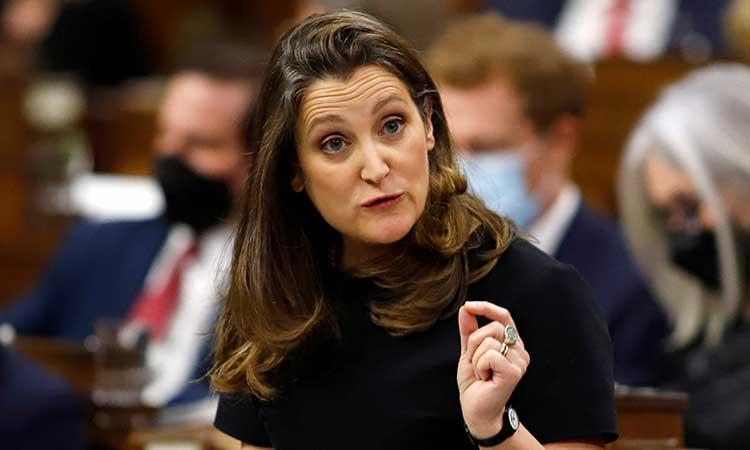



















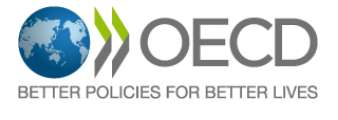











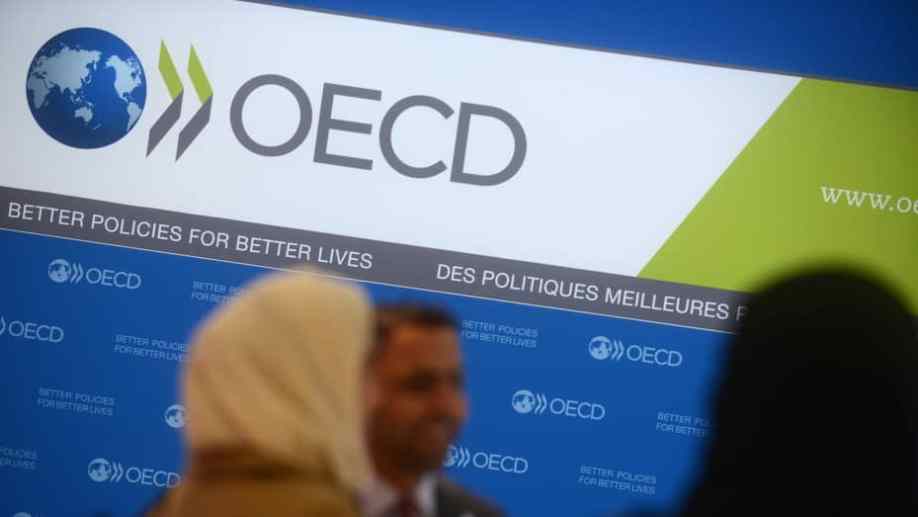




























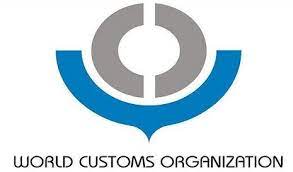







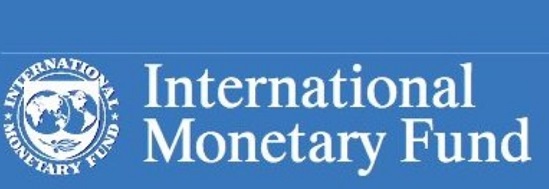

































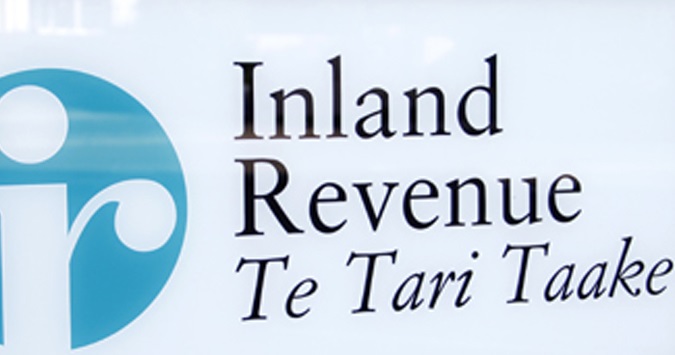



























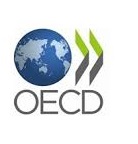



















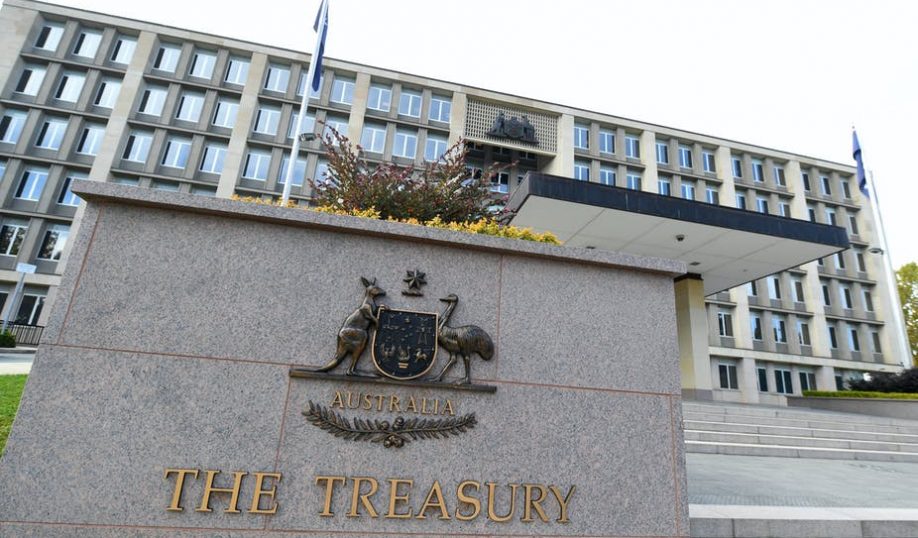



































































































































































































































You must be logged in to post a comment.